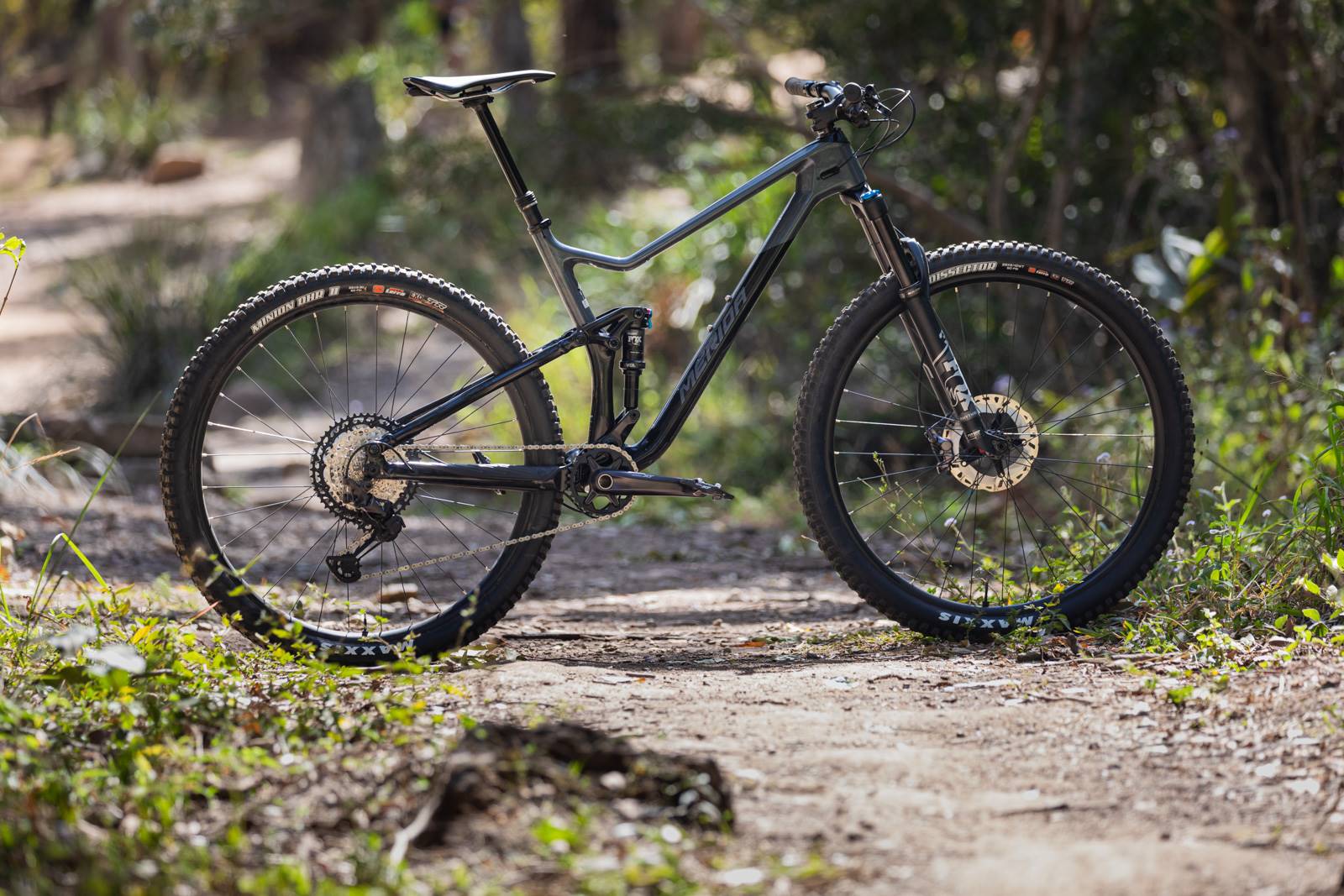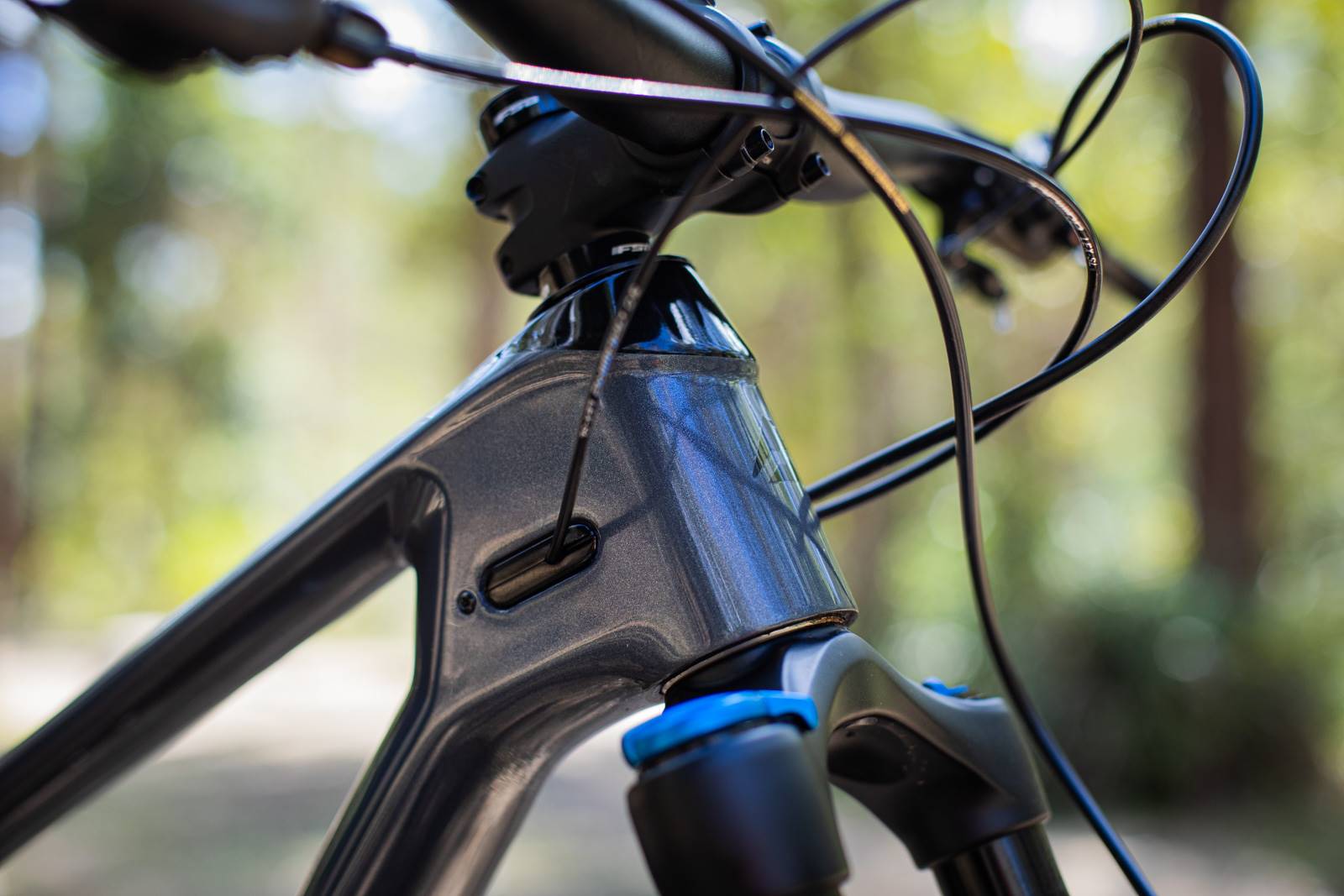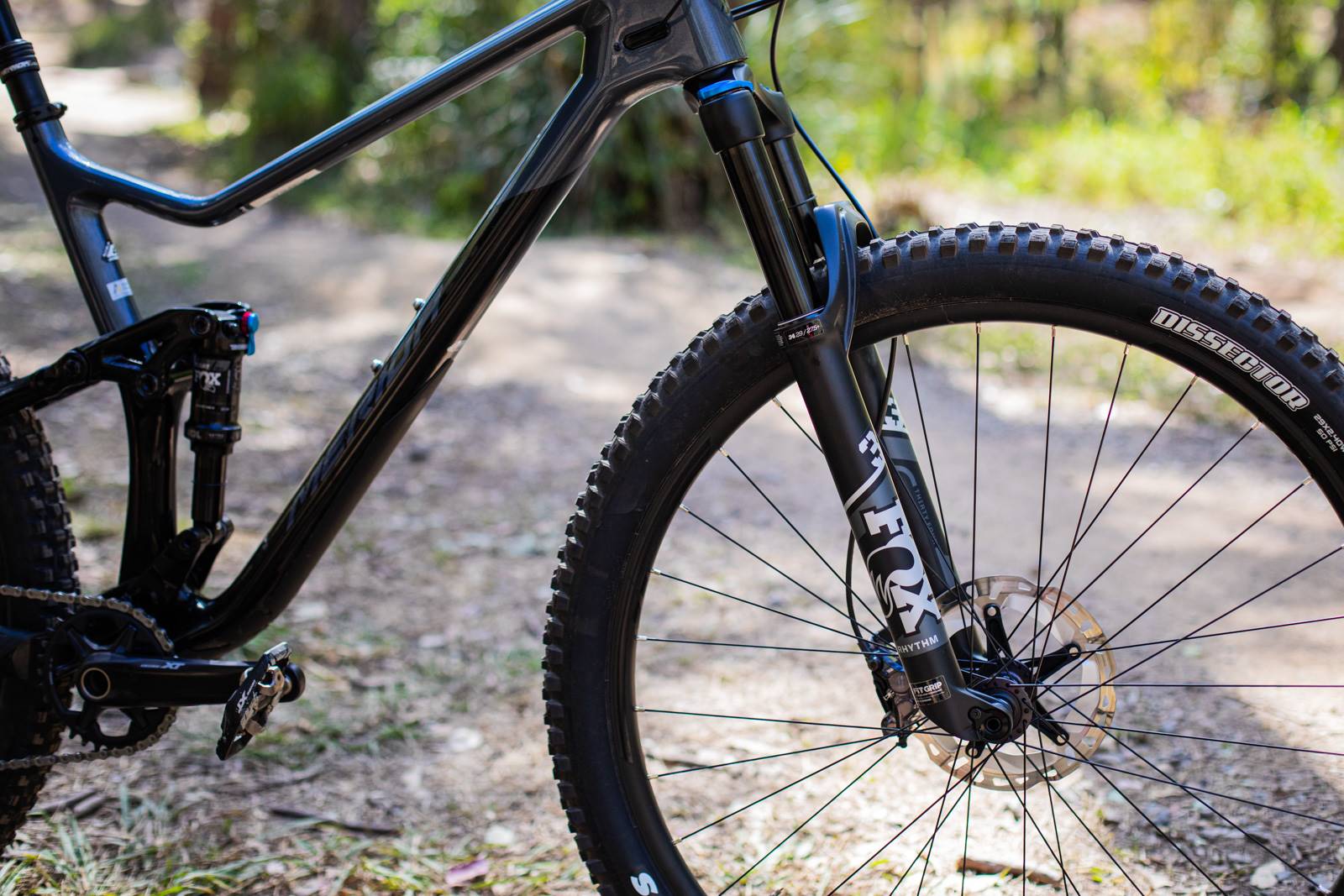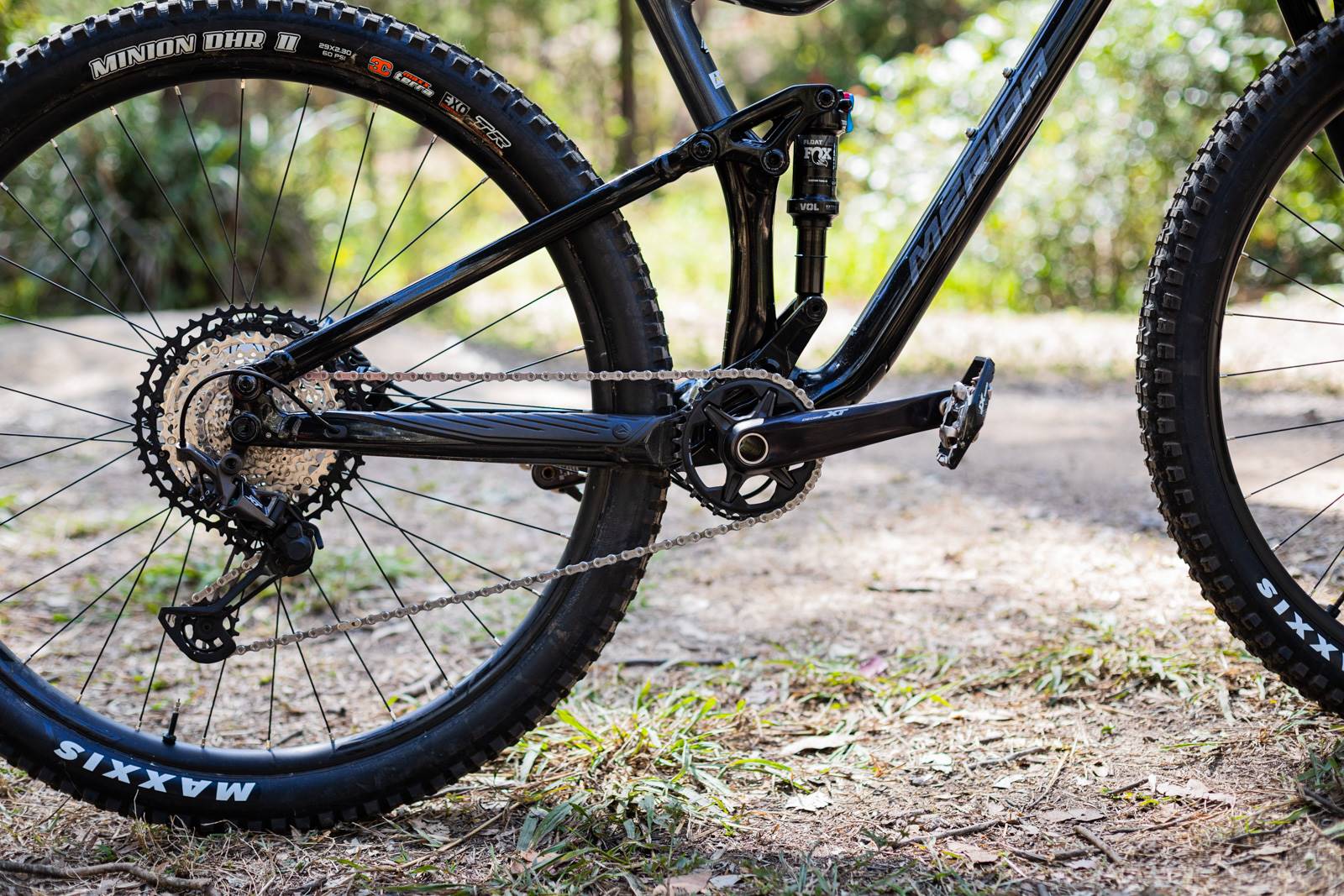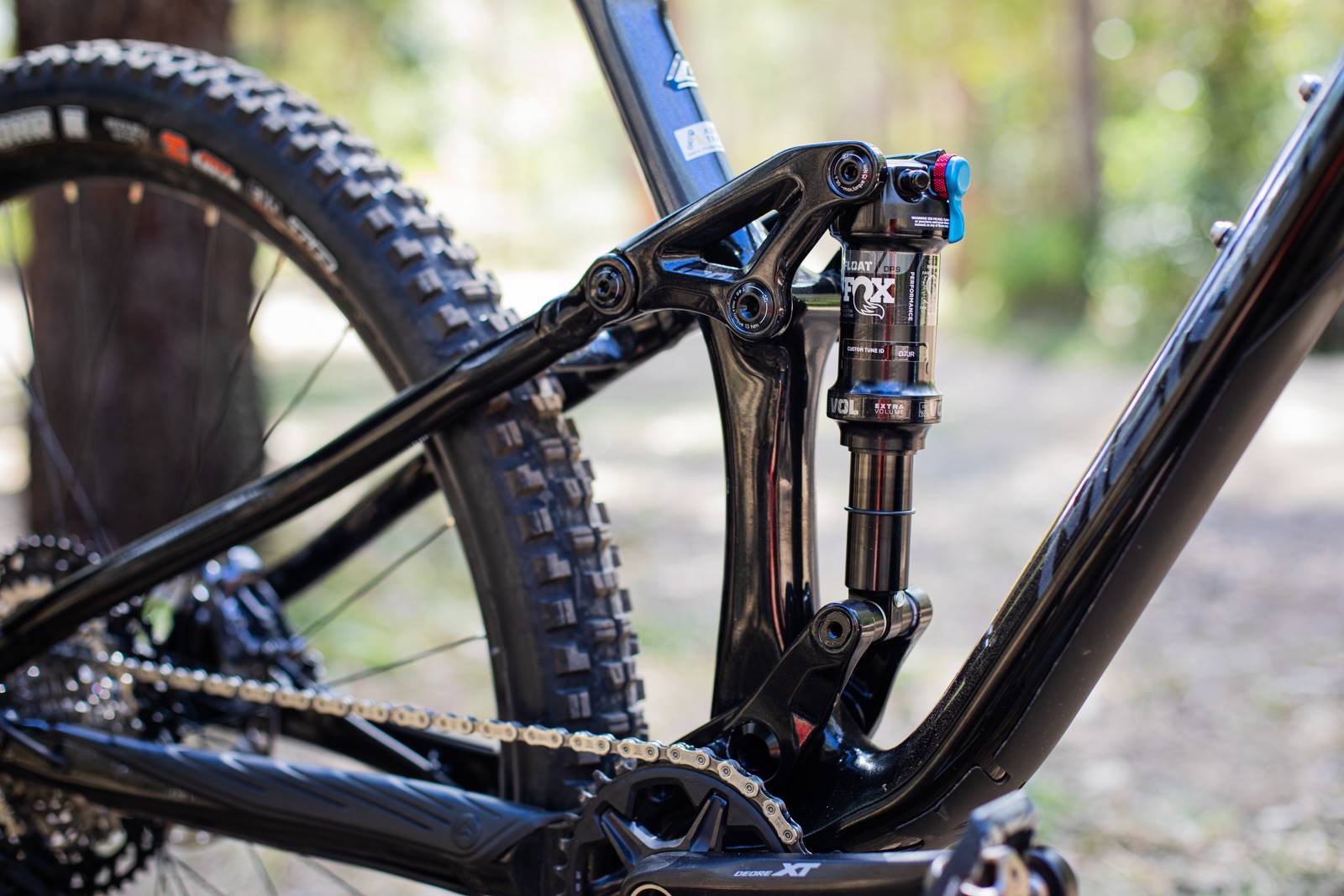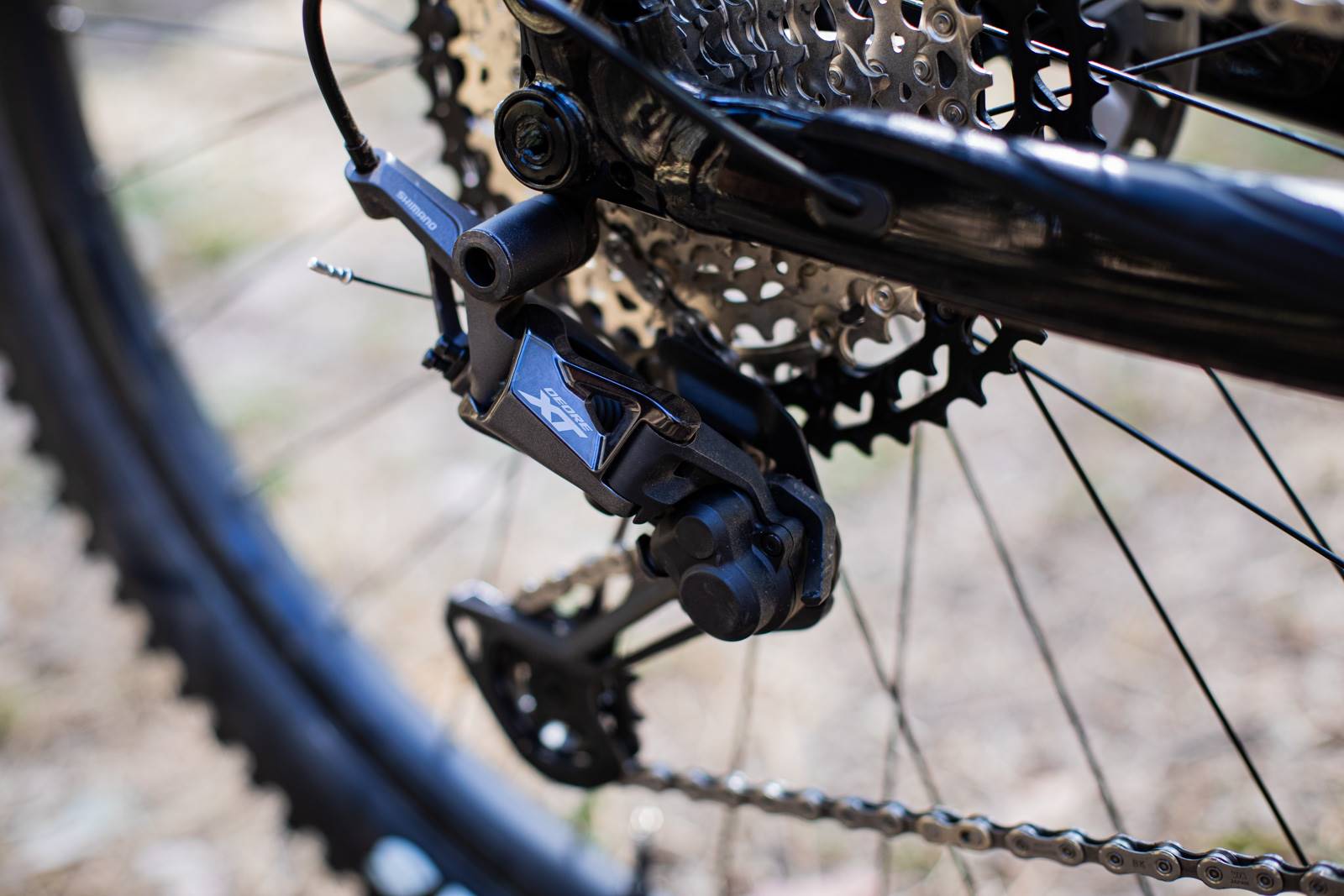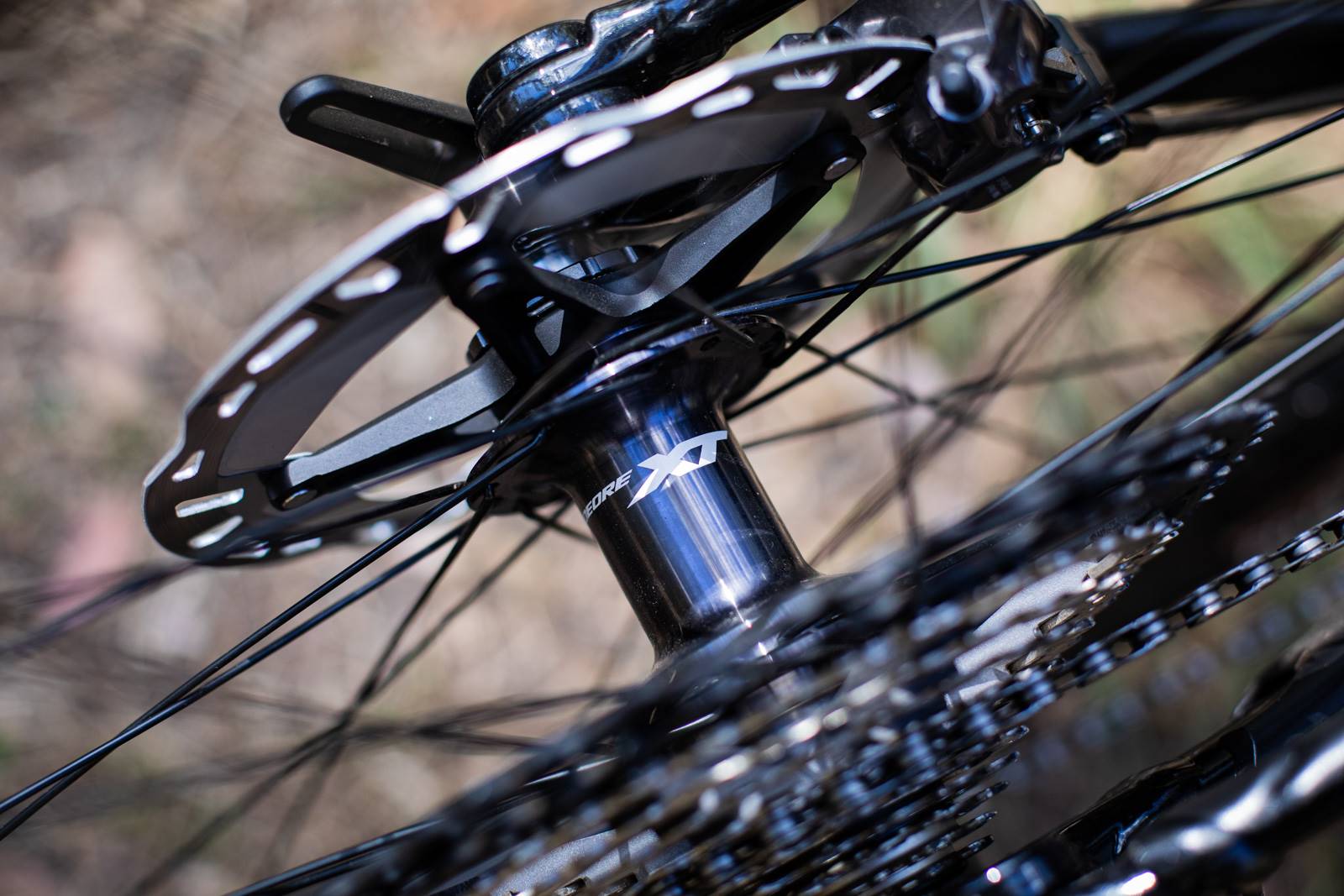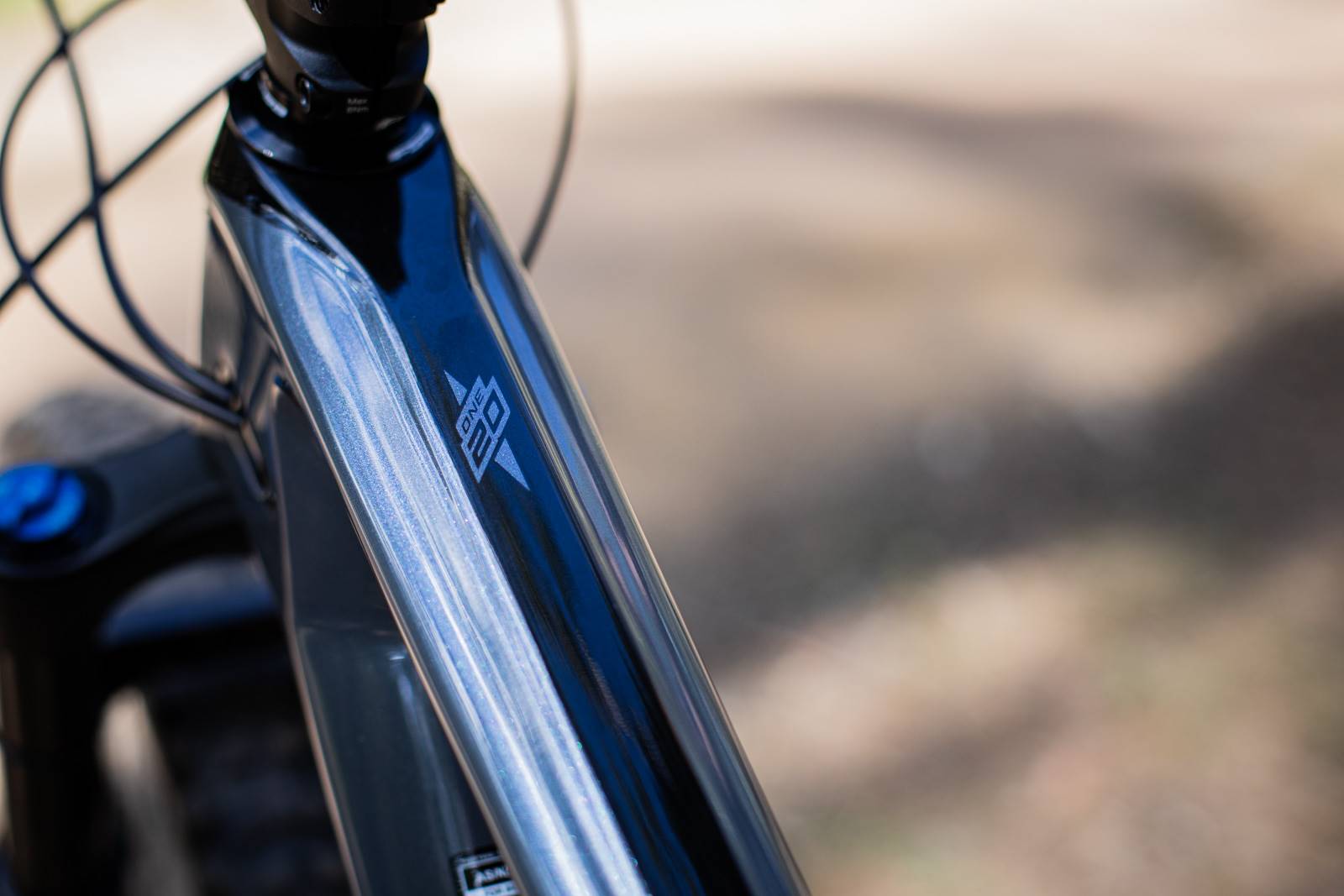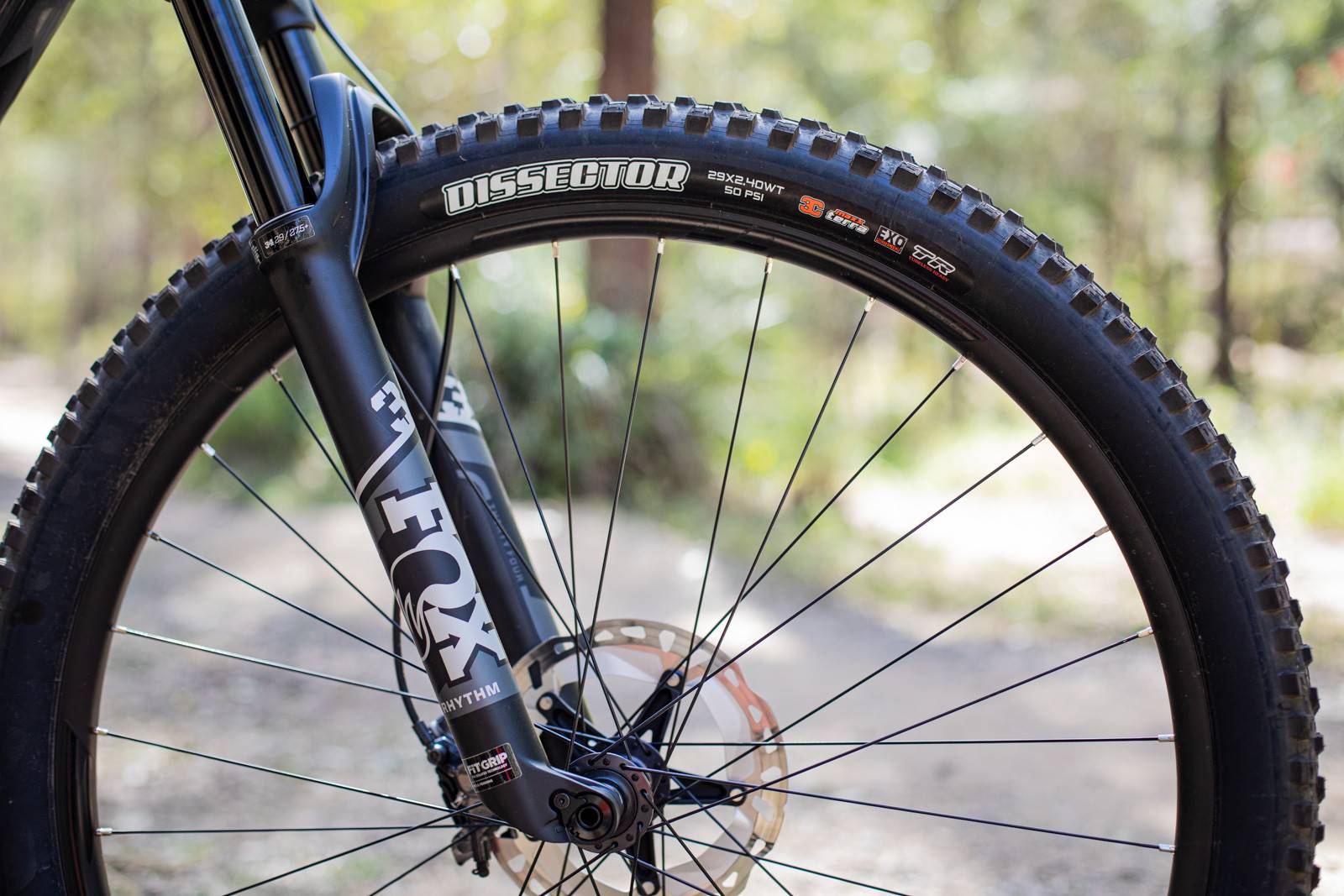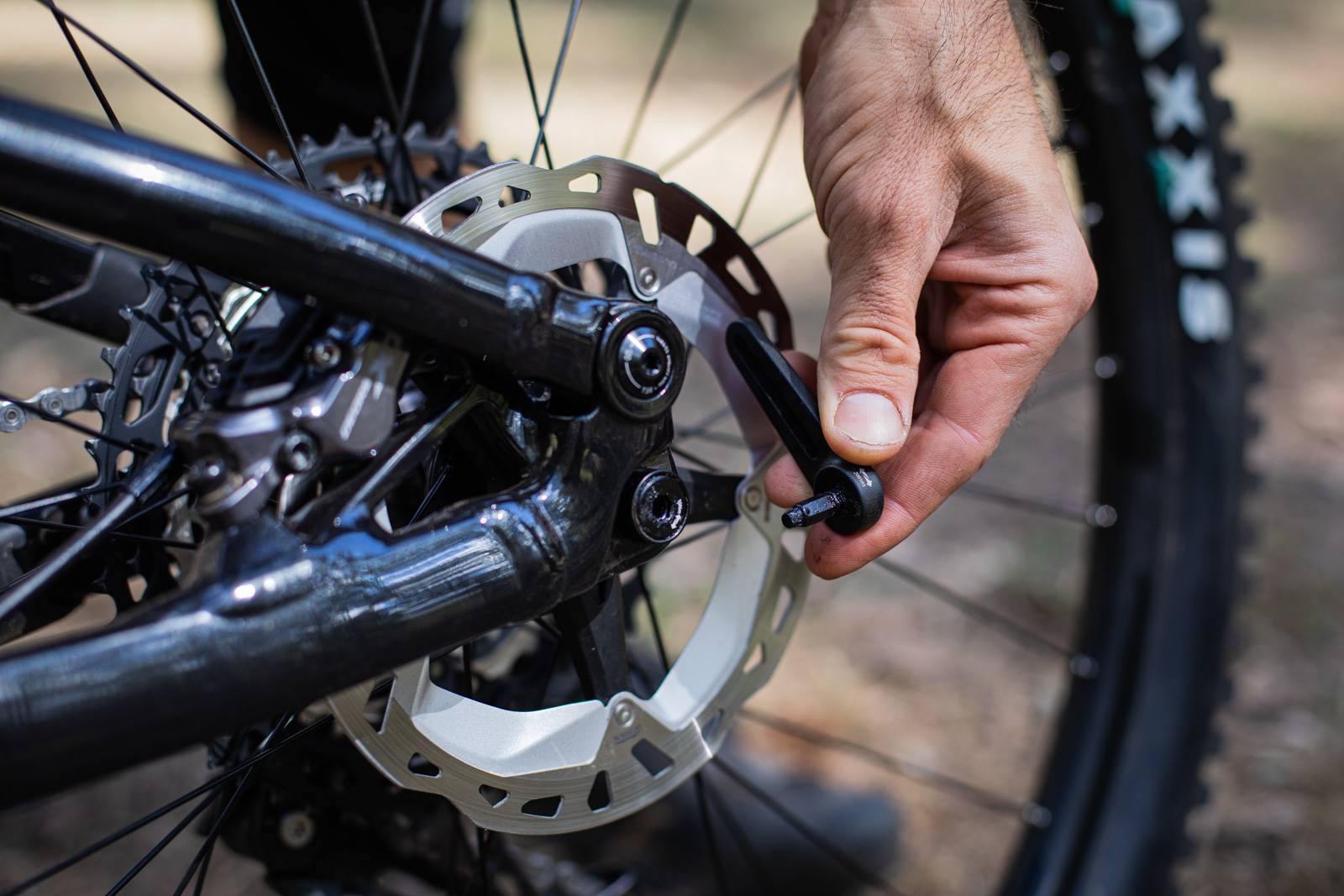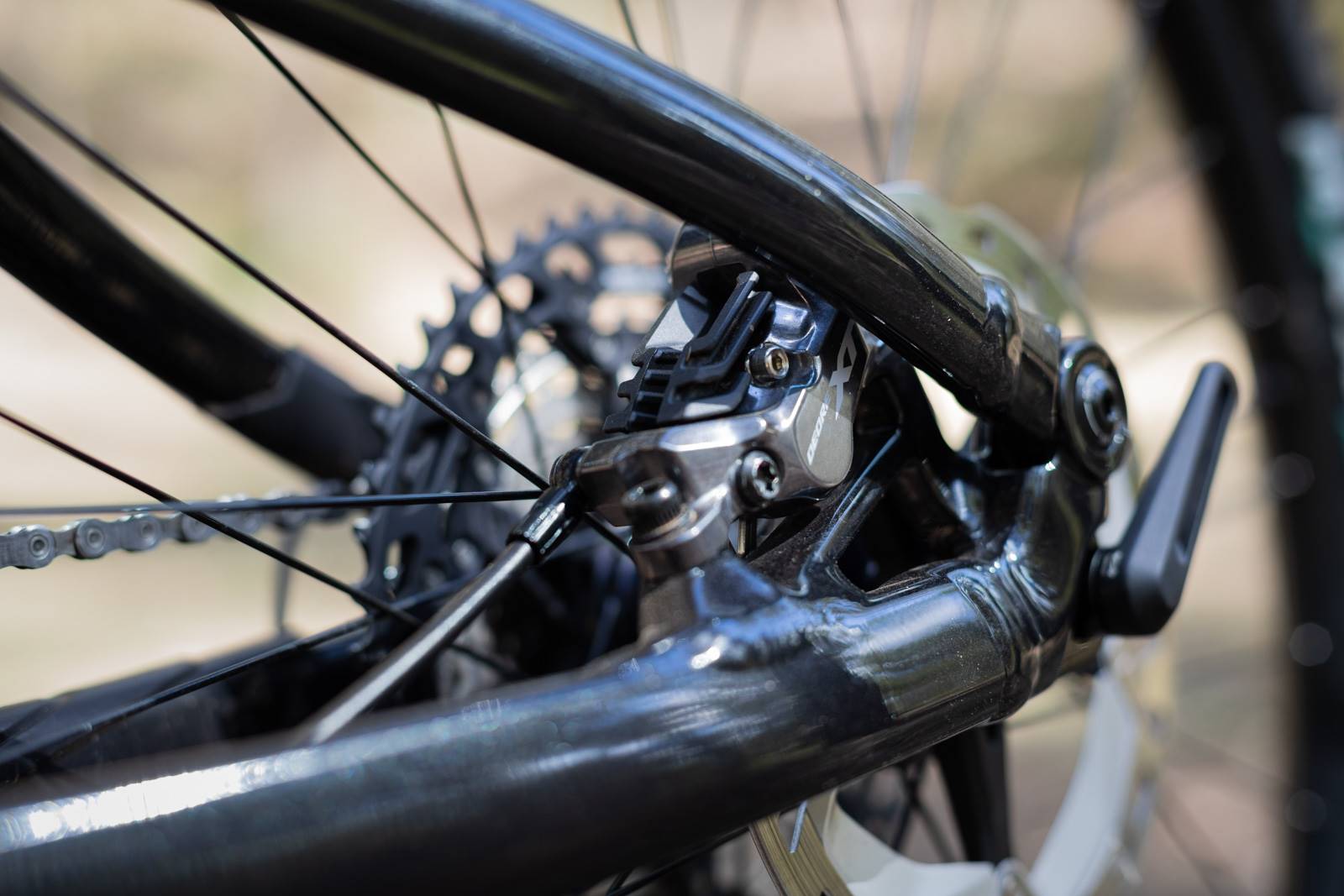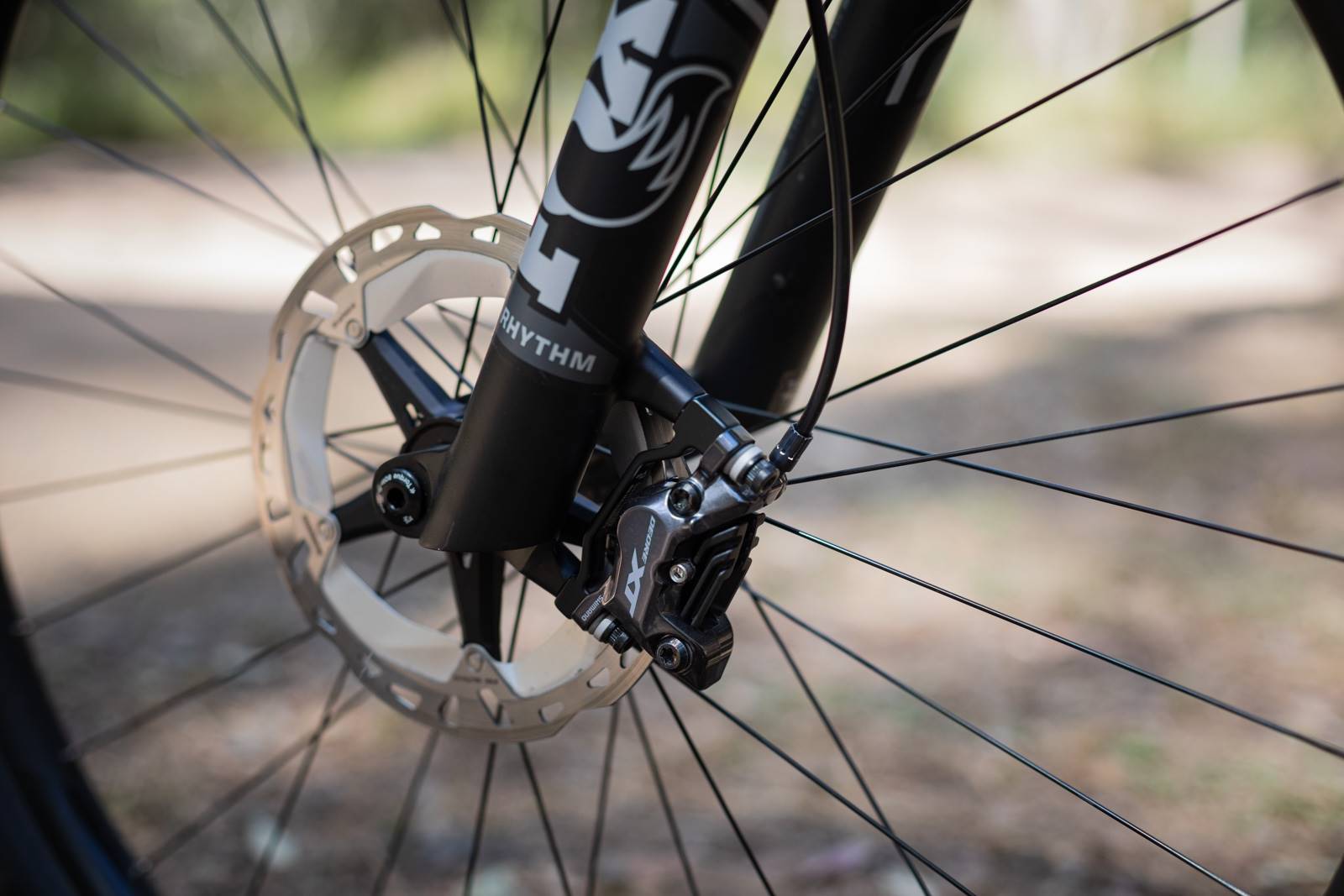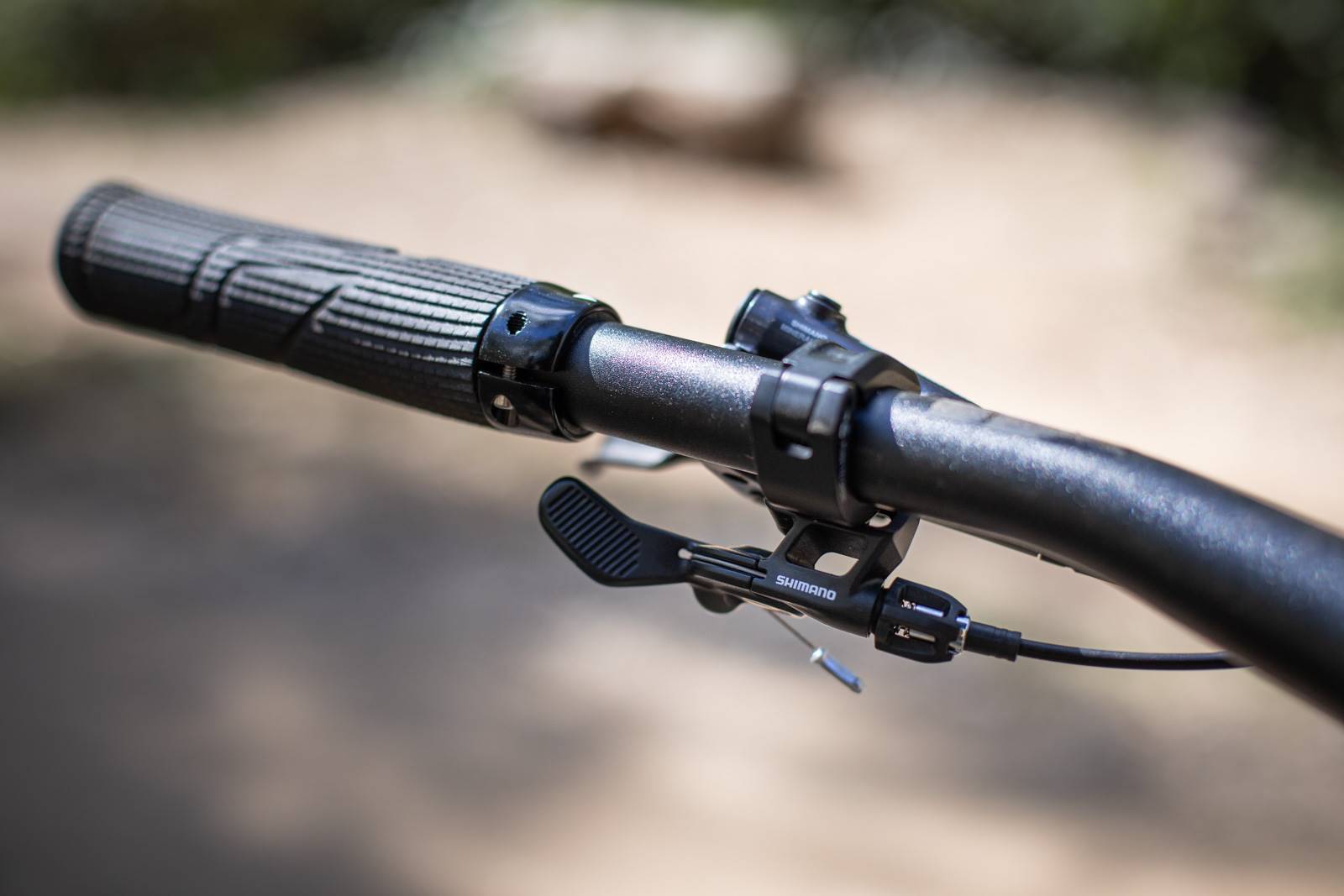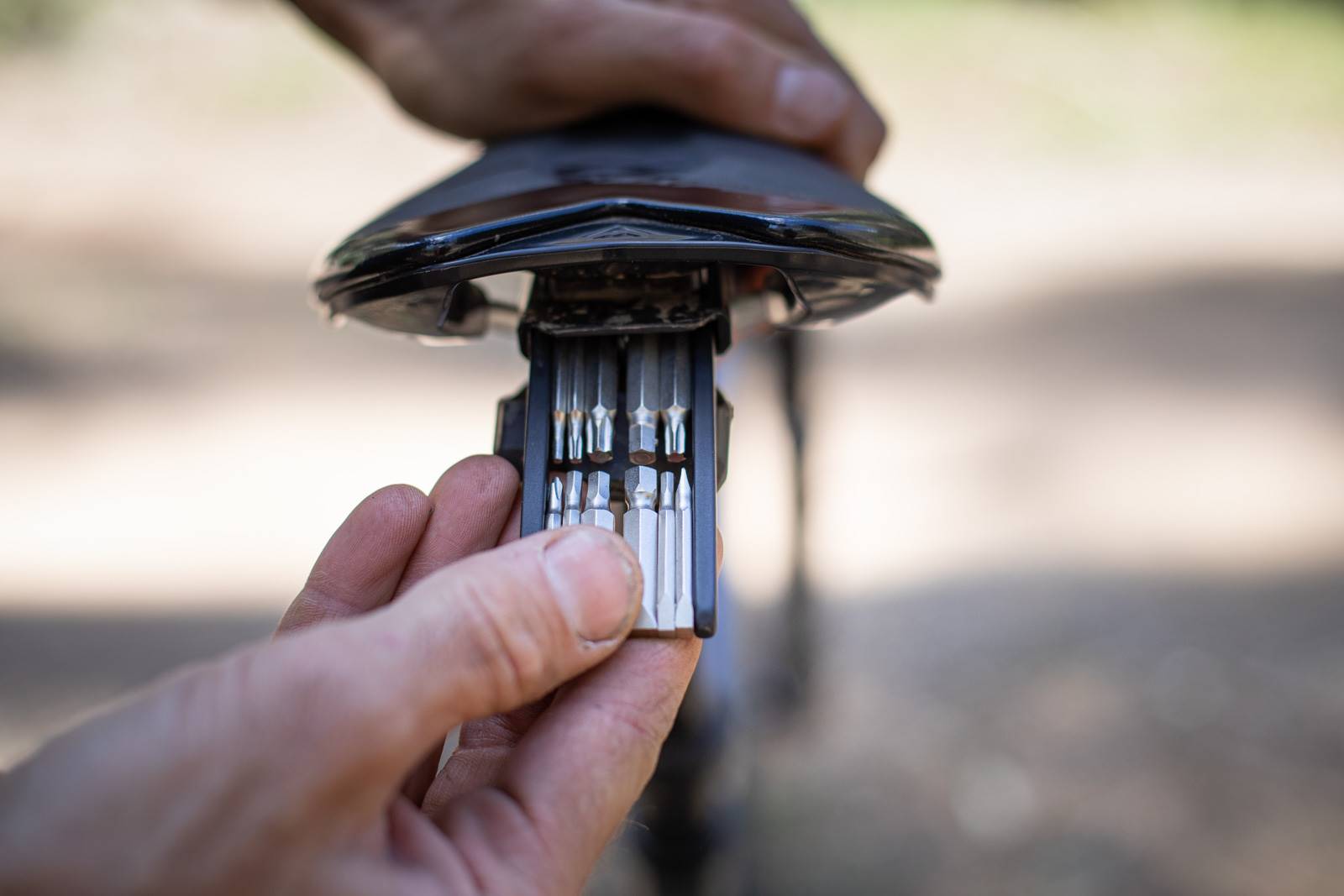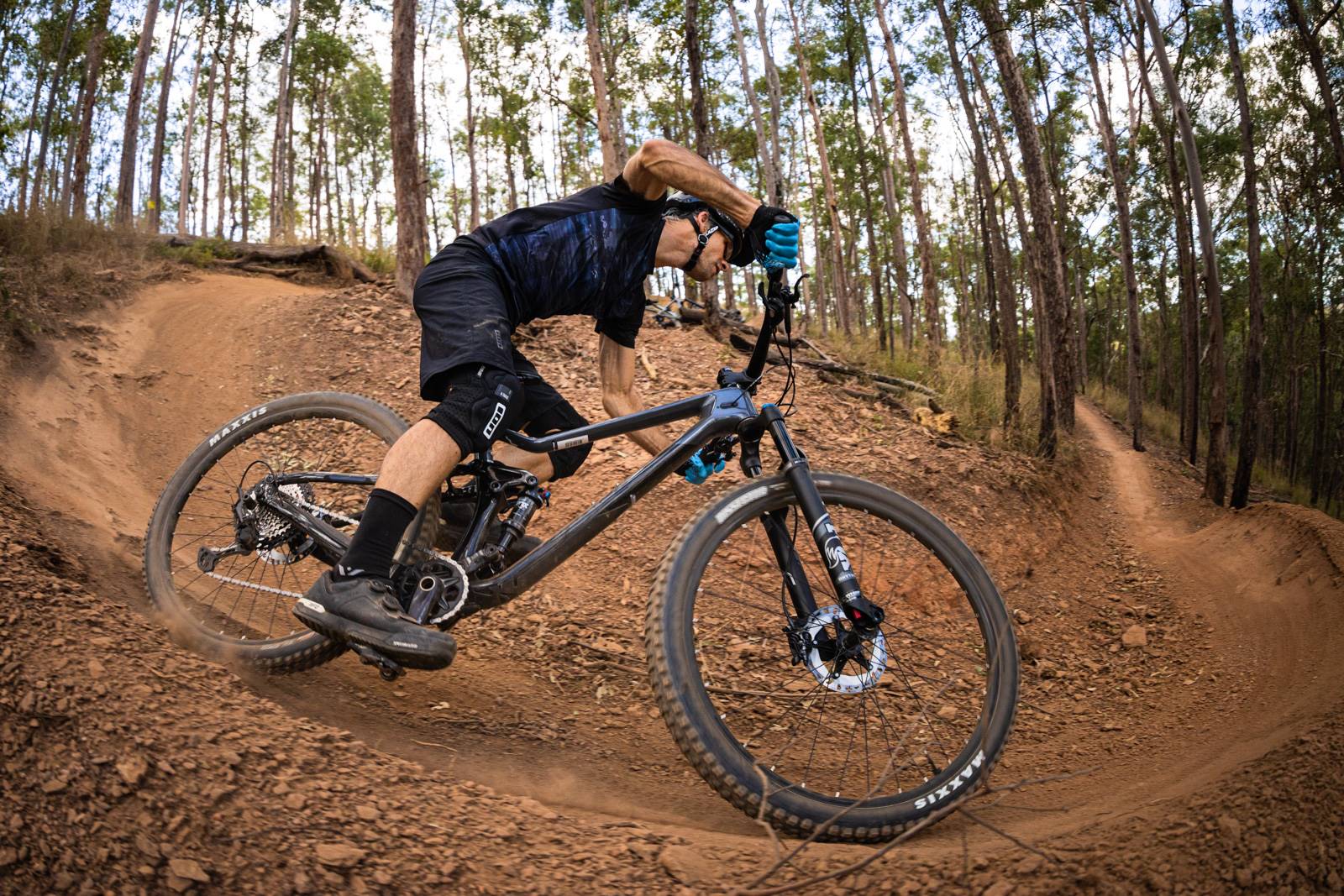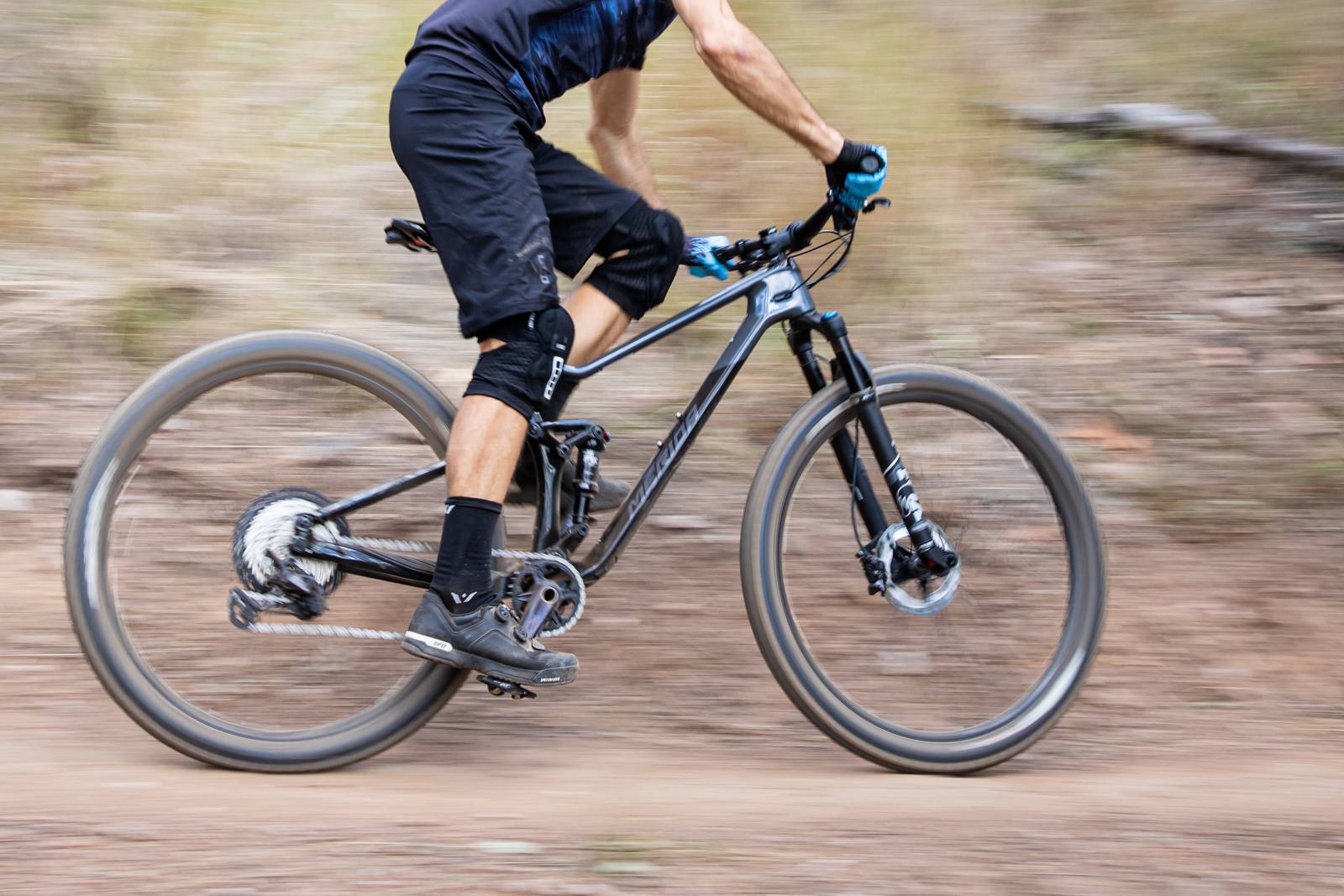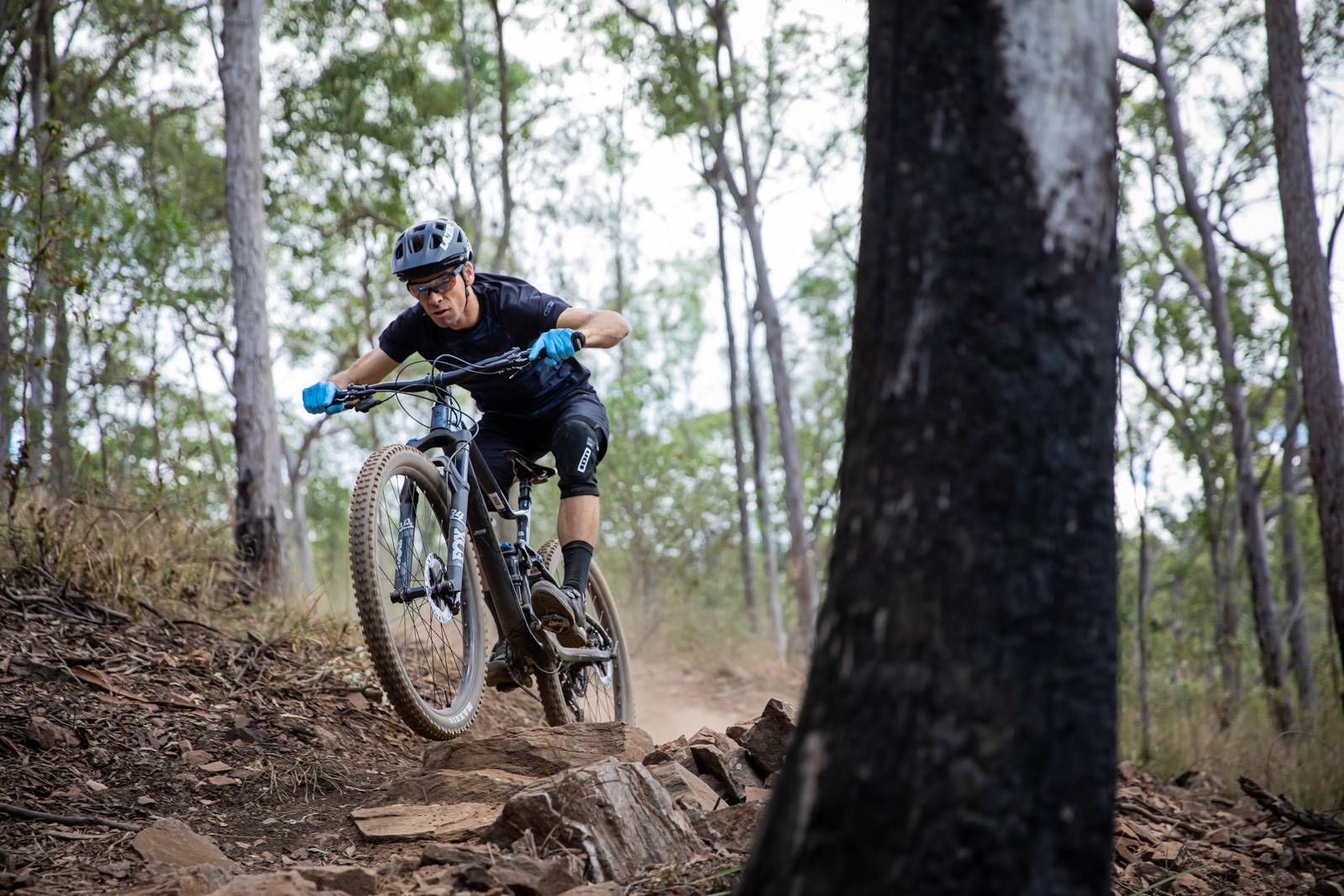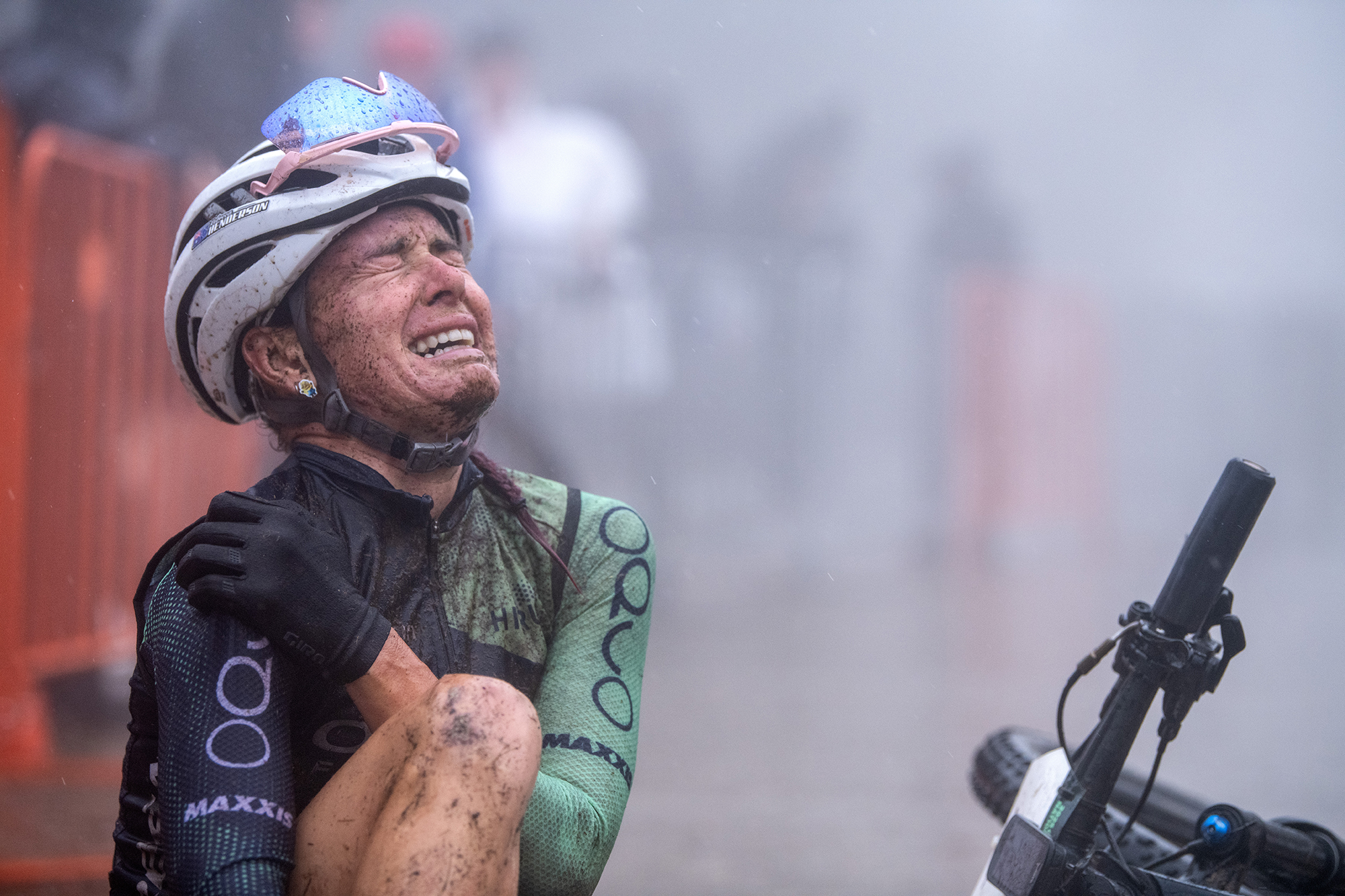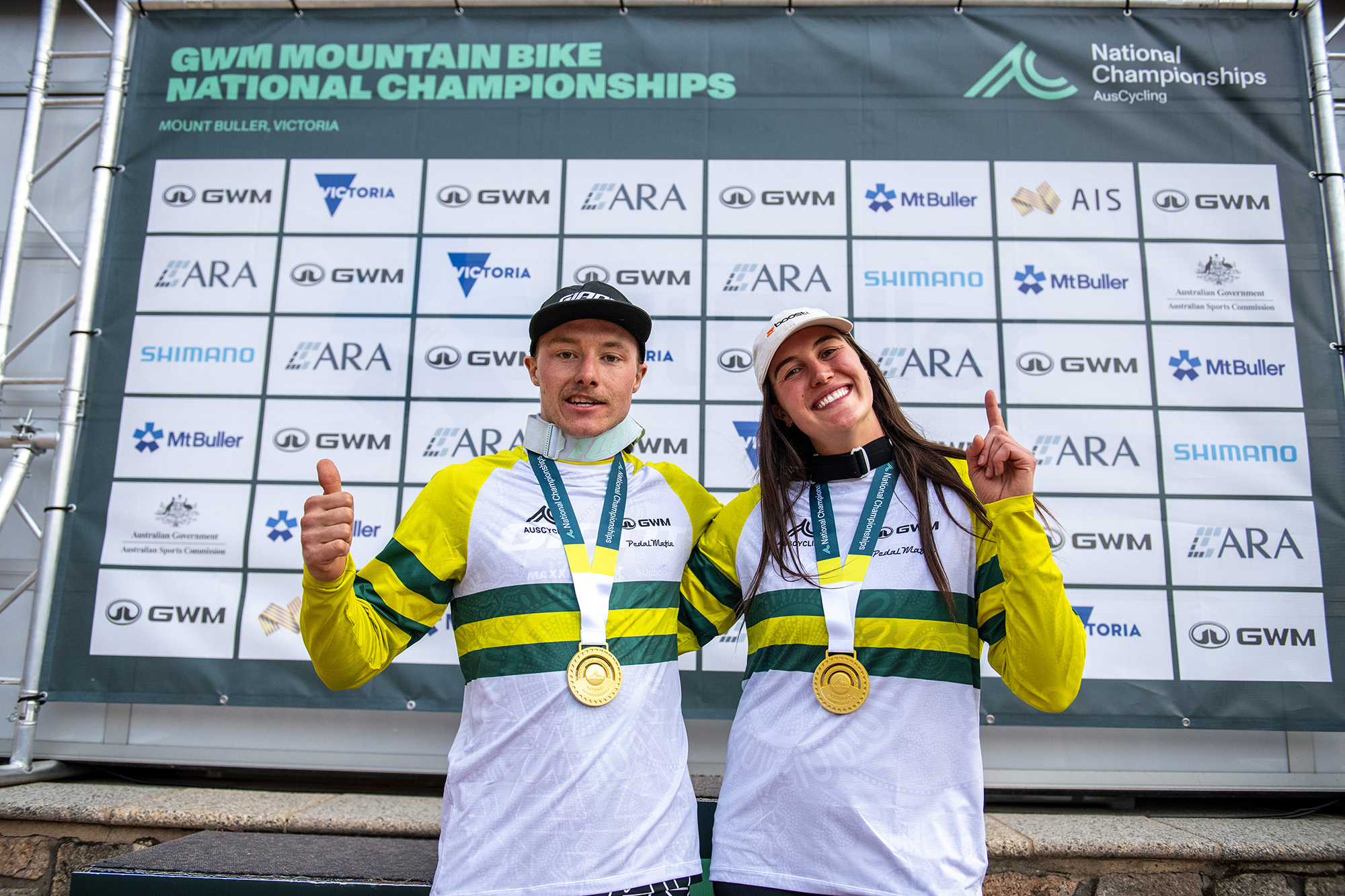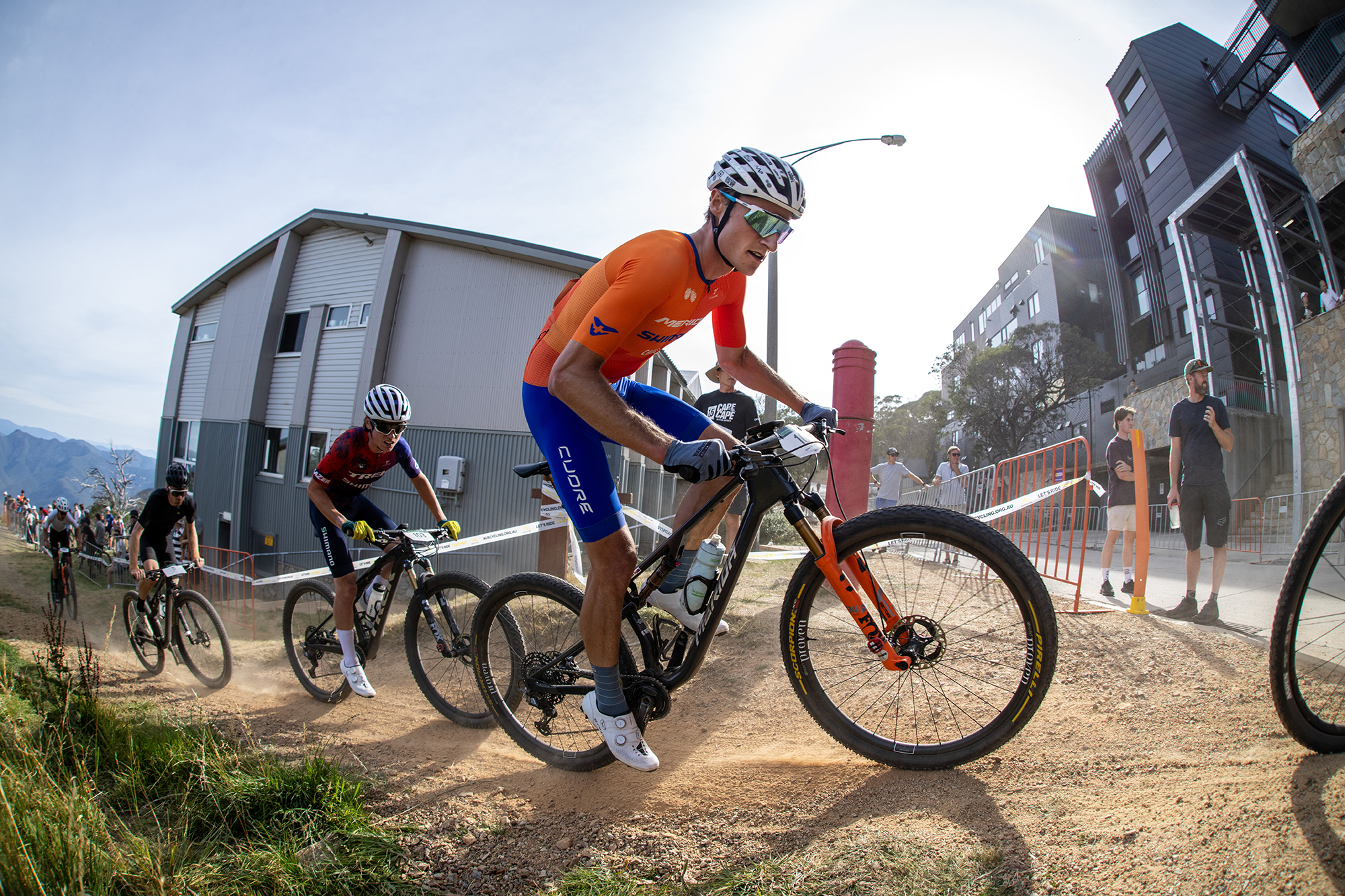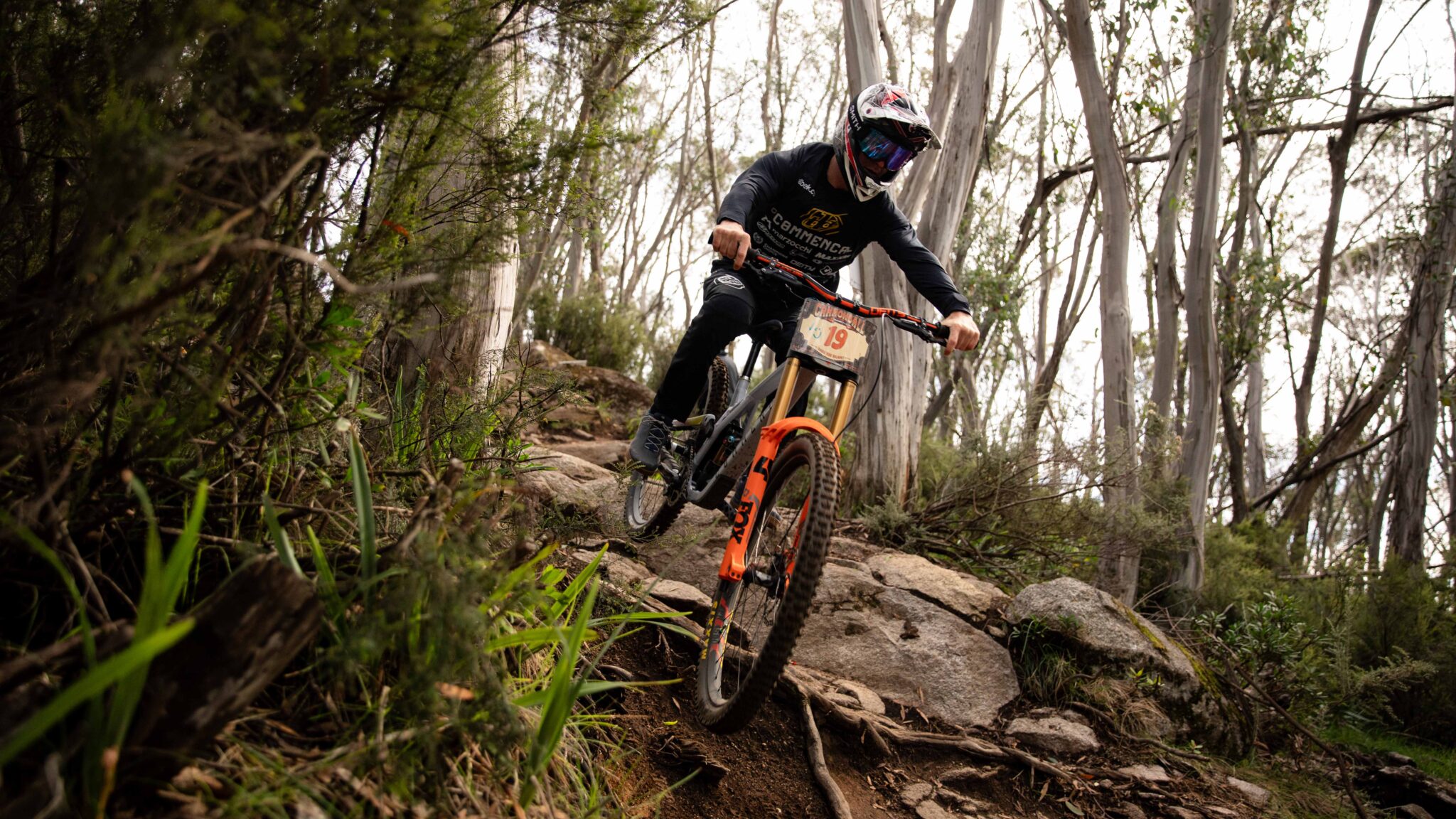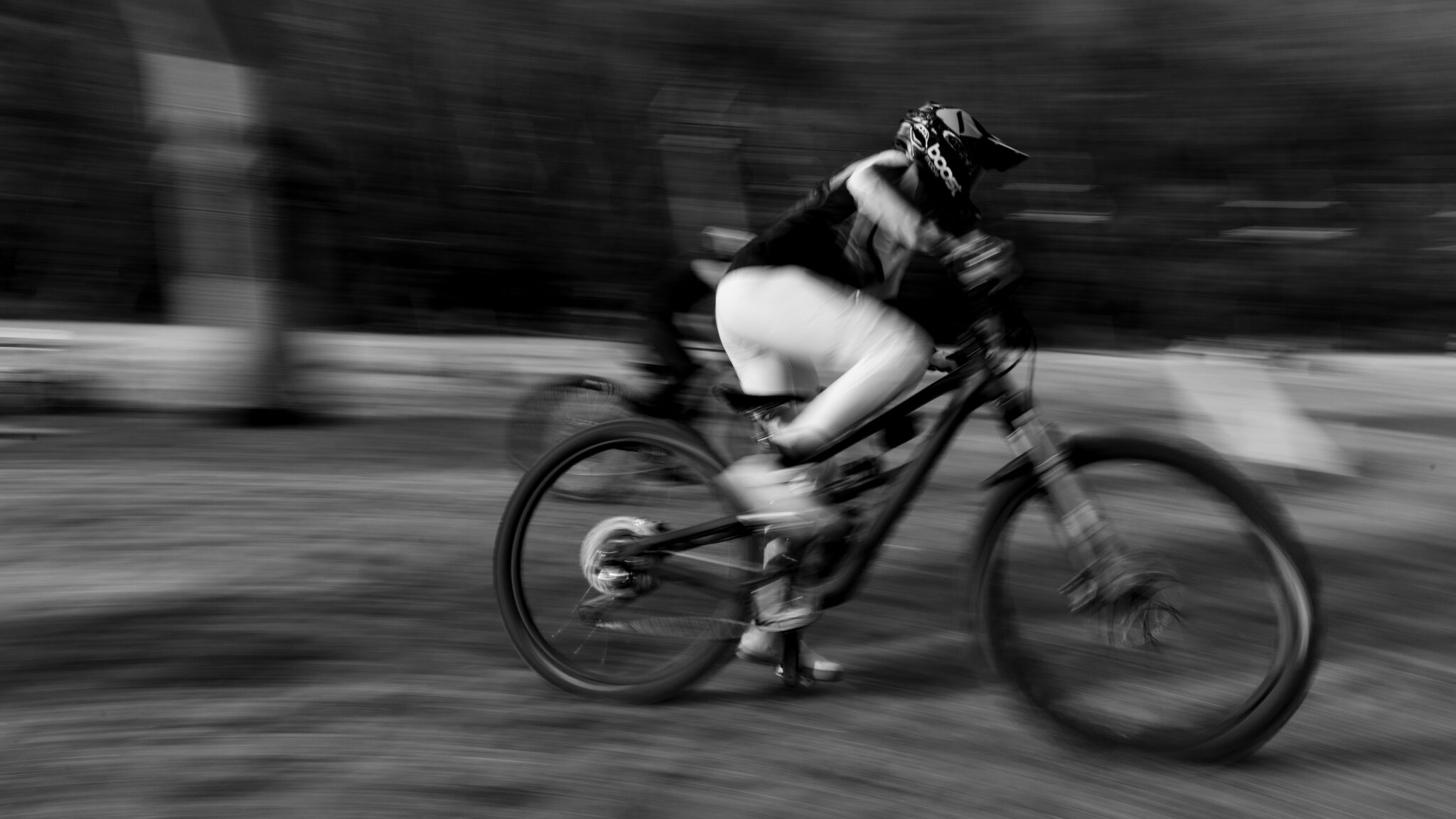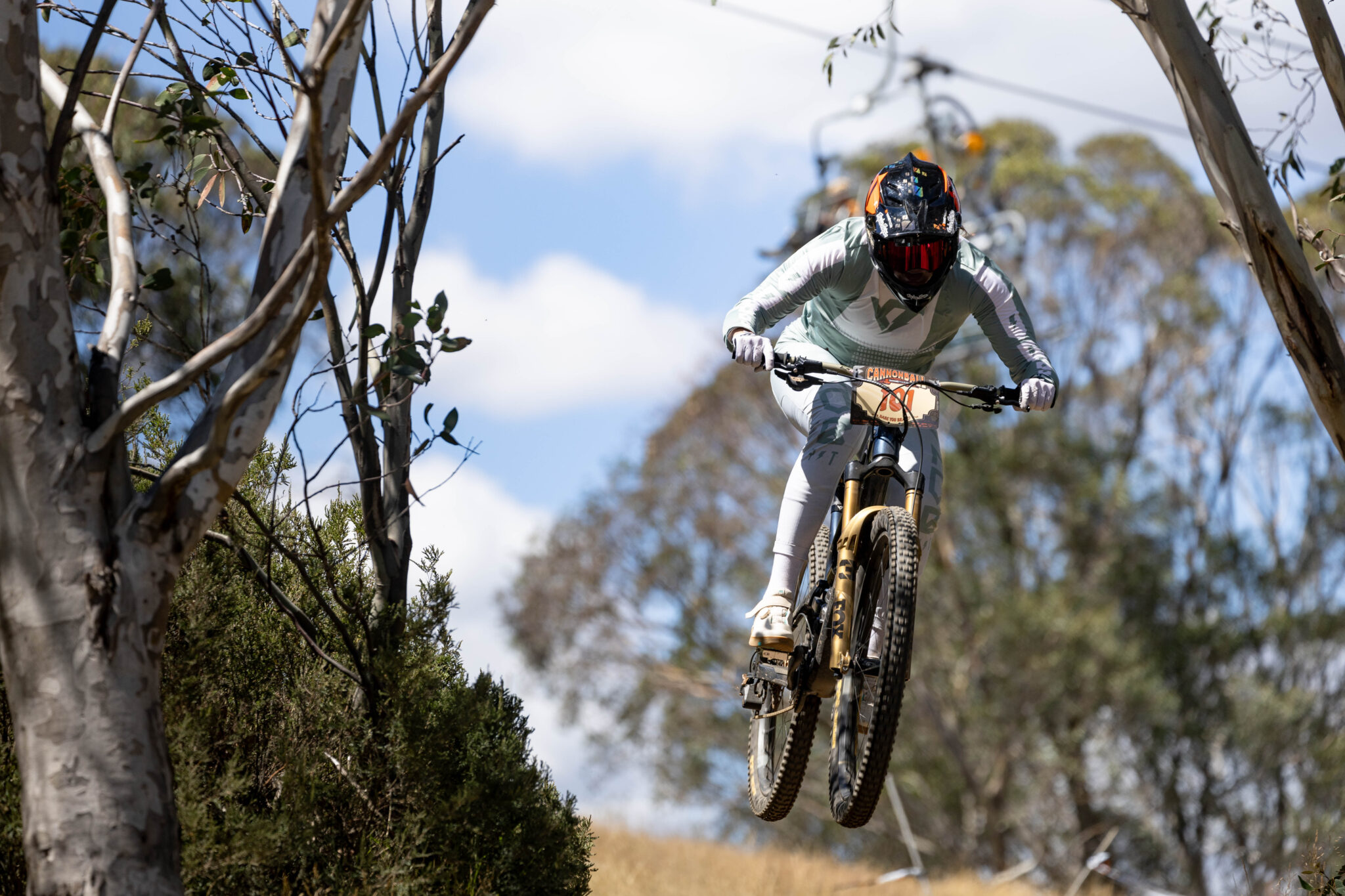TESTED: Merida OneTwenty 7000
Falling into the ever-evolving trail category the Merida OneTwenty - we tasked Editor Mike Blewitt with figuring where it fits in
Words: Mike Blewitt
Photos: Colin Levitch
Merida have lead the charge in World Cup cross-country, bikes that have great bang for your buck, eMTBs and more – but their short travel One-Twenty trail bike range can be looked over – but it might just be one of the highlights in their bike range.
The One-Twenty sits above the racey Ninety-Six, and below the 27.5” wheeled Merida One-Forty. As the name suggests the Merida One-Twenty has 120mm of travel, which is matched to a 130mm travel fork. And while there used to be 27.5” wheeled options with the One-Twenty, they have gone the way of the Dodo for 2021. The desire for more travel can mean some riders overlook many short travel trail bikes like the One-Twenty. Having spent a lot of time on the Transition Smuggler and Norco Optic over the past 12 months, jumping onto the Merida One-Twenty platform looks to be another bike in the same vein – but is it?
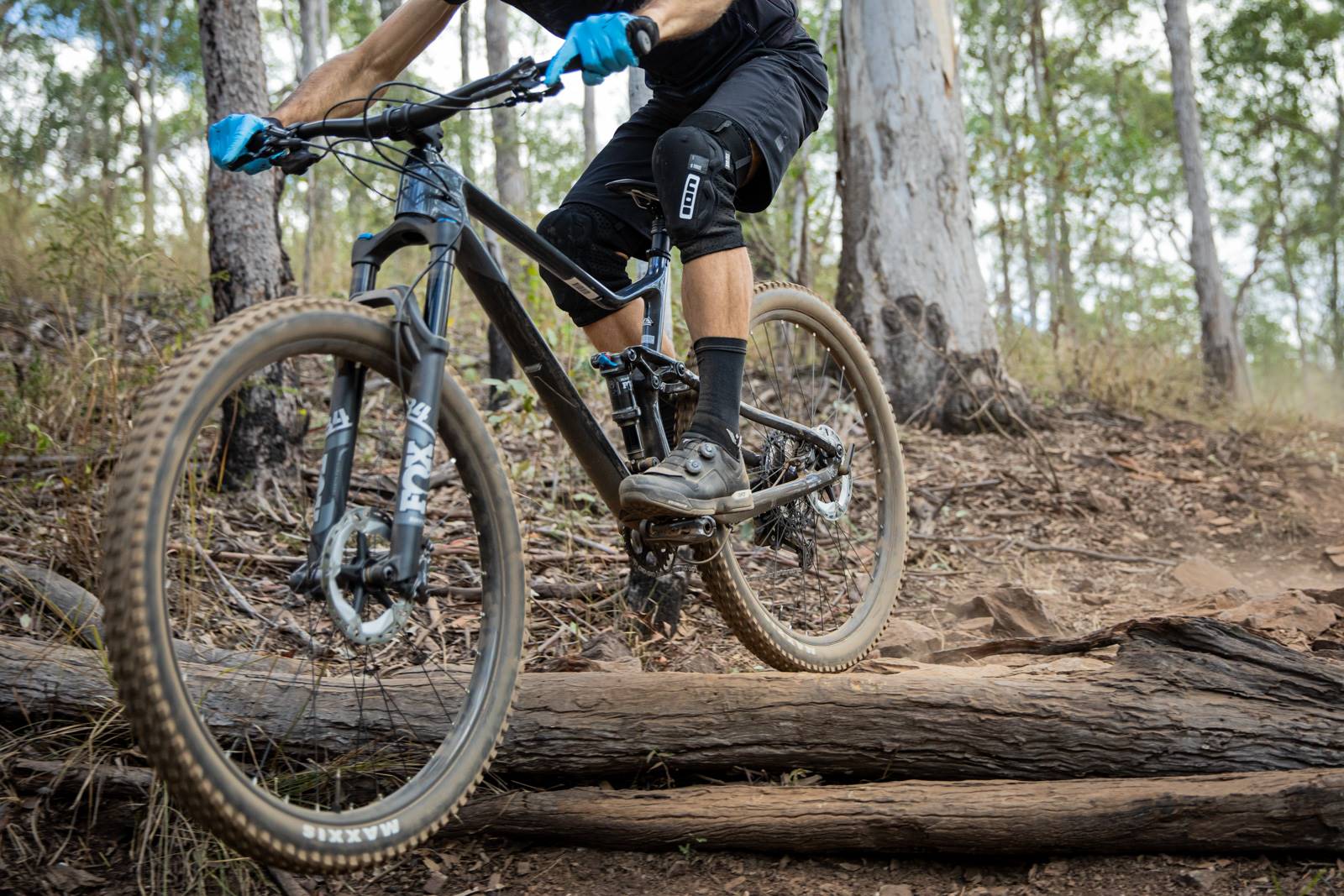
In 2019, we were lucky to review the Merida One-Twenty 8000, which by and large is the same handling bike as is on test here, but with a full carbon frame and more glam parts spec. There have been a few small changes though but really, the big one is that the bike on test sells for $5699, which is a more realistic price point for most of us. Bear in mind there are four One-Twenty models with full alloy frames starting at $2299, and two models with the carbon mainframe. The One-Twenty 3000 sells for $4499 and has a mostly Shimano Deore 12-speed group set on the same frame as the 7000.
While there are lots of subtleties between short travel trail bikes, the Merida One-Twenty is going head to head with lots of highly refined bikes in the short travel trail bike market. This includes bikes such as the Trek Fuel EX, Giant Trance 29, Norco Optic and Transition Smuggler. Although given how well the One-Twenty rides and pedals, is it actually going up against the Trek Top Fuel, Norco Revolver 120, Transition Spur and other down-country bikes?
Initial Impressions
The grey and black One-Twenty 7000 is subtle and neat. Merida’s carbon frame uses their internal cable routing, which clamps the cable via a two part alloy plug system and bolt. It’s pretty fiddly to adjust, but it does stay stable. The down tube is really quite large, and the top tube is slender but wide. Merida have clearly worked to keep the front of the bike stiff, and provide a stiff power transfer from the head tube, through the down tube and to the back wheel. There’s room for one bottle cage inside the frame, and the dropped top tube means there is plenty of standover height. The nifty through axle tool means you will always have the 6mm allen key for the fork and rear axle on hand.
The Merida One-Twenty 7000 has alloy chain and seat stays with lots of shaping for heel clearance and additional tyre clearance. That said, the tyre clearance isn’t massive, and that is likely why you’ll see a 2.3” tyre on the back and a 2.4” on the front. It’s fine, but other bikes in this realm won’t have any issues with a 2.4” tyre in the back. And one fit fine, by the way.
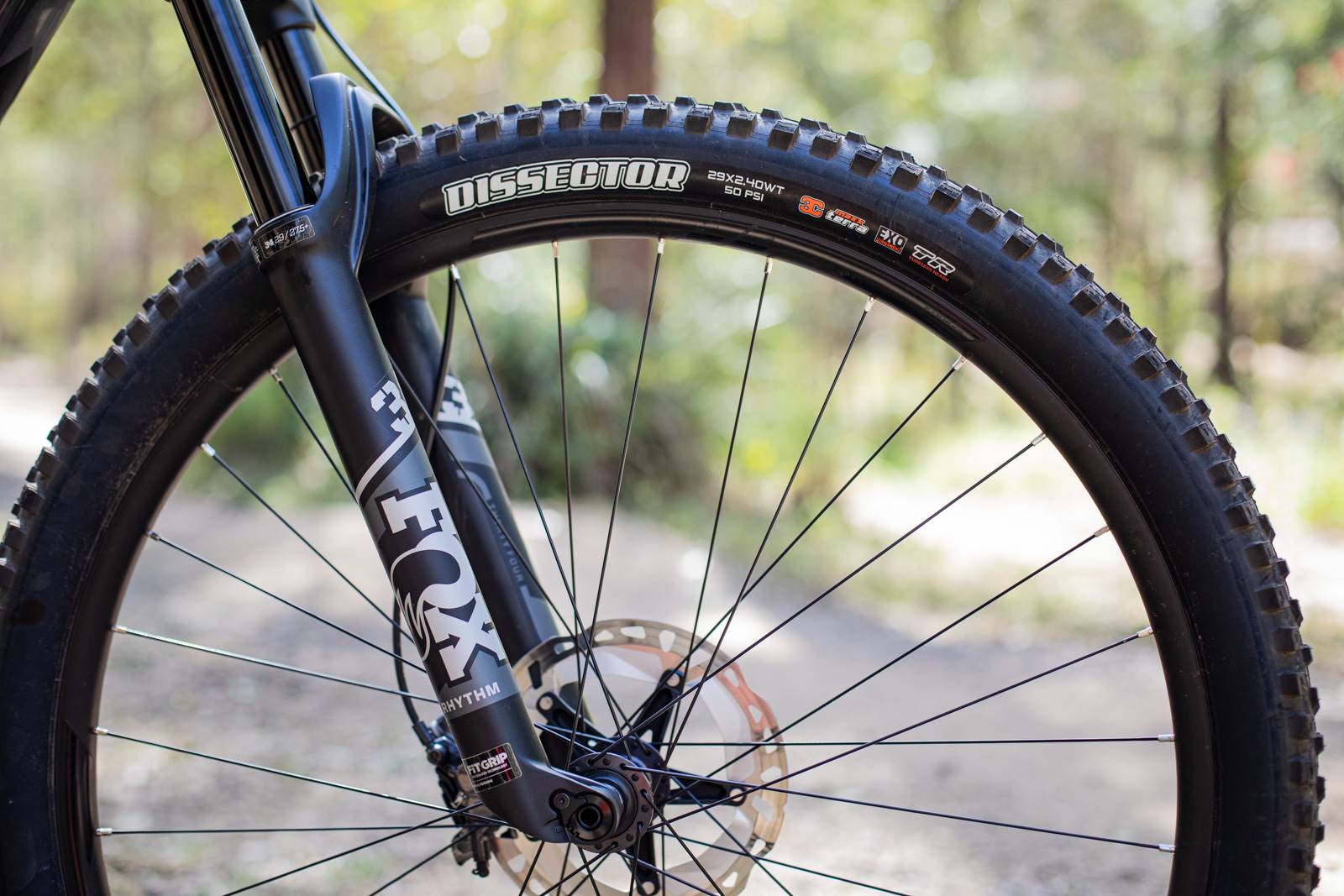
Geometry is becoming pretty murky. What is XC? What is trail? What is modern and what is progressive? And even more subjective – what do you actually like? The Merida One-Twenty has a 67.3 degree head angle, and a moderate reach of 455mm in the large size. The 75.5 degree seat angle keeps you more forward and on the pedals than the frame’s appearance, and 435mm chain stays are a happy medium between a stable wheel base and something that pops up the front too easily. All this keeps the wheel base well under 1200mm in large, and the 40mm bottom bracket drop still allows a nice balance of stability along with pedal clearance. There are longer bikes, slacker bikes, lower bikes – but there are also bikes that are more work to ride. And the One-Twenty is anything but hard to get on and ride.
The group set is a complete Shimano Deore XT M8100 12-speed build, with 4-piston Shimano M8120 brakes matched to the 180mm IceTech rotors. Everything is Deore XT, nothing is missed, not even the hubs or dropper lever. The hubs have fast engagement and spin for days on their cup and cone bearings. They are laced to Merida’s own alloy rims, that have a modern 29mm internal width, the perfect base of support for the Maxxis Dissector and Minion DHR II tyre combination. There’s no tubeless tape fitted or valves, but the wheels and tyres set up tubeless easily once tape and valves were fitted.
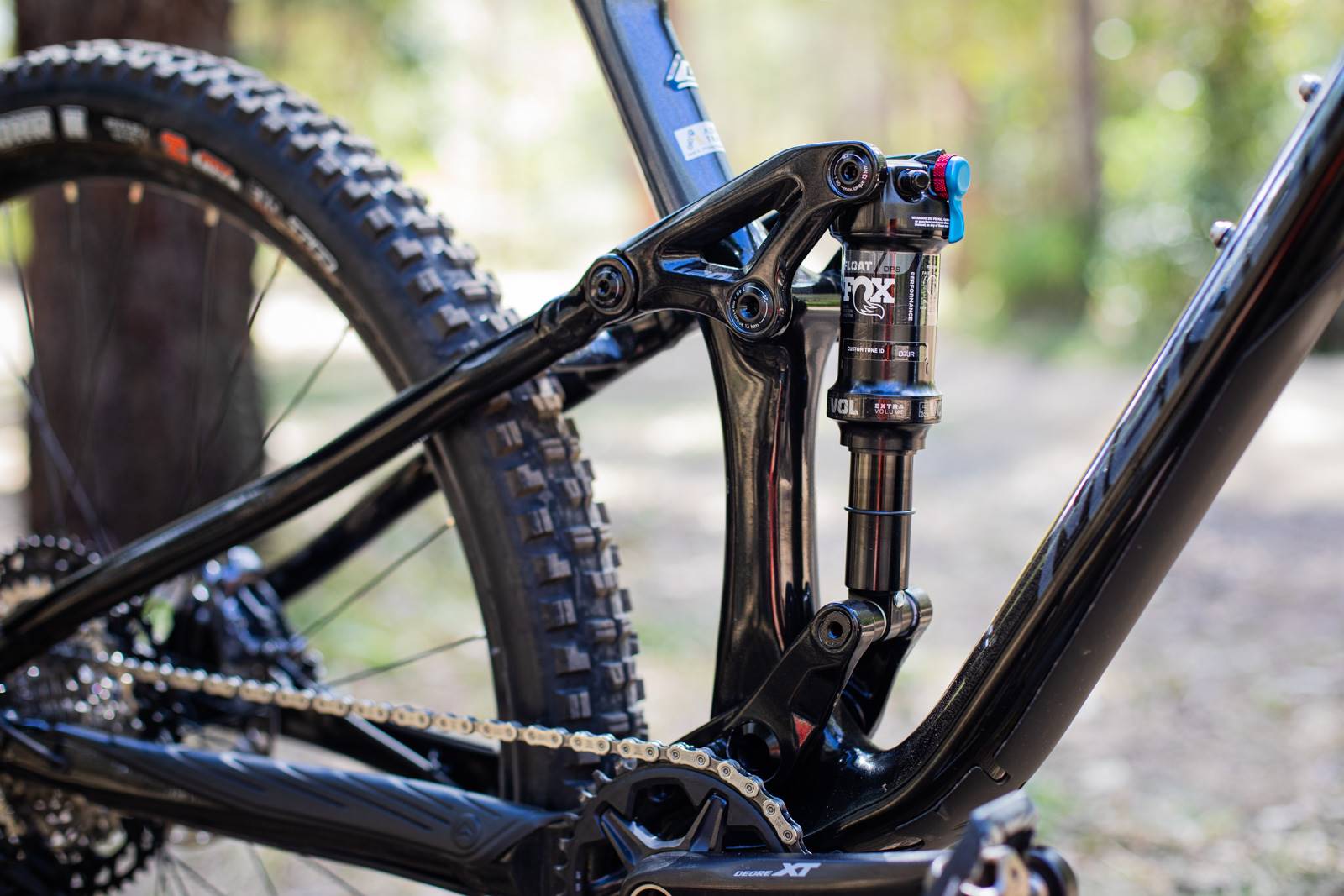
Suspension duties are via Fox, with a Rhythm 34 on the front. This has 44mm of offset and compression and rebound damping via the GRIP damper. The Float air spring has the biggest range of adjustment though, and is straight forward to set up for your position, weight and riding using a good shock pump, and volume spacers if needed. The rear shock is a Fox Float DPS Performance model, which has a Trunnion mount. Merida use a Trunnion mount on the One-Twenty to allow a shorter overall shock length for the stroke (shock movement) available. It’s a little stiffer laterally, and should extra suppleness by using bearings in the upper attachment. The 3 position compression adjustment is very easy to adjust, as is the air spring and rebound. The Float Link suspension means that the lower shock mount is attached to a moving member of the suspension platform. Due to the rear pivot location the design is essentially a linkage activated single pivot. Some may say it is therefore more prone to pedal and brake forces, but on the trail the bike is very supple even under braking, and it pedals well when seated. The only time it really isn’t very nice is when it’s locked out!
Merida’s own brand 170mm dropper, seat, bars, stem and grips round out the package. You could fit some items that were a bit flashier if you wanted, but they all work well and have good ergonomics. And the built in tool for the saddle is a real bonus! The whole parts selection and bike is really no fuss, and after setting the wheels up tubeless, fitting pedals and setting shock pressures, I was good to go.
On The Trail
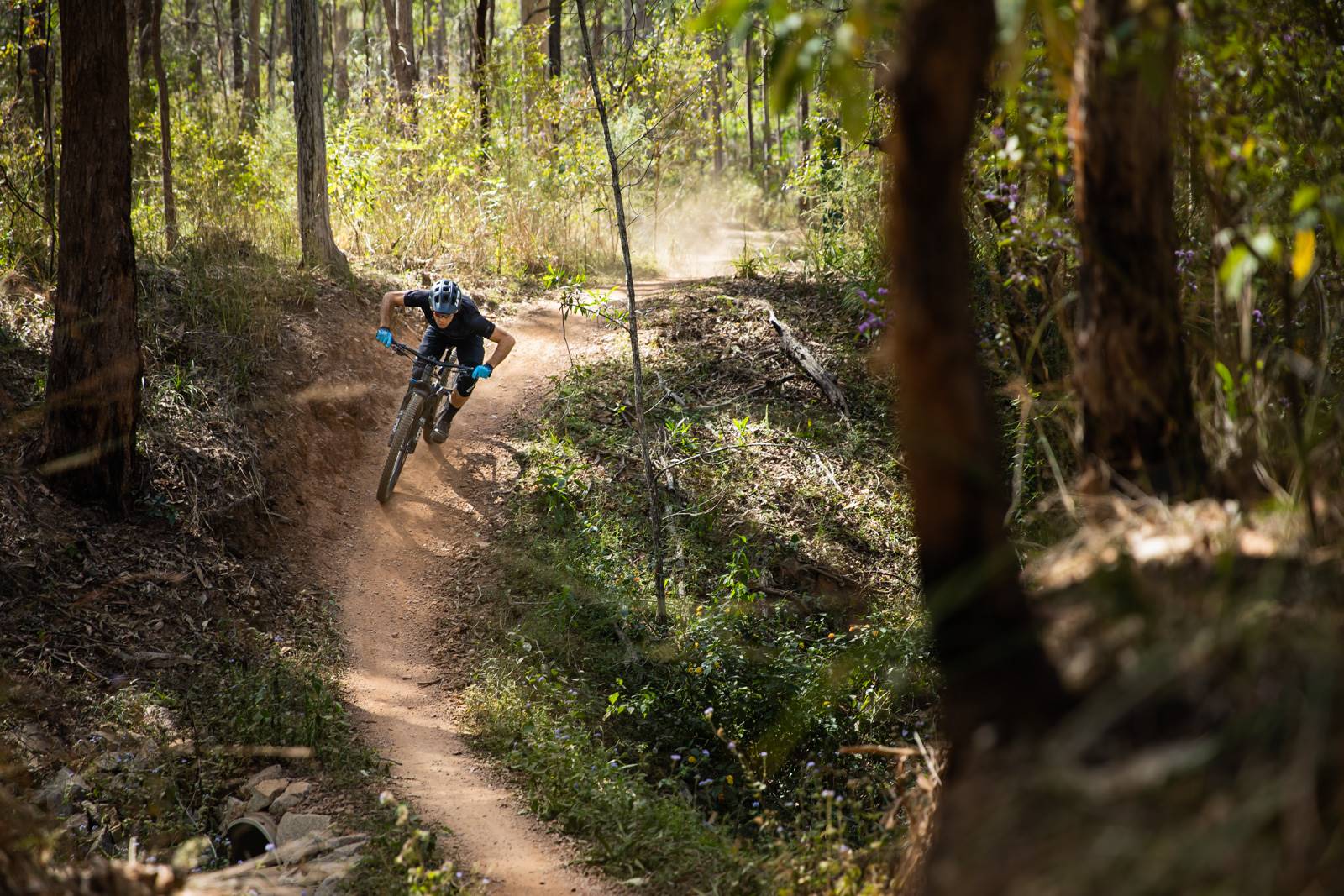
There is something to be said about getting on a bike and just riding it. Having a bike that you can throw a leg over and ride is a true highlight. My first ride that went beyond the end of my street was a group ride with friends. And while it was pretty casual, that means any singletrack is done full gas, or near enough. It was a four hour ride fuelled by a late stop for a doughnut and chocolate milk – and at no point did I think about the bike I was riding. All the other riders were on some mix of short travel trail bikes, or a trail hardtail.
My first impressions were that the One-Twenty was fun. It was agile, it was stiffer and more confident than a long travel XC bike, but it didn’t leave me worn out and tired, which some short travel trail bikes do after group rides like this.
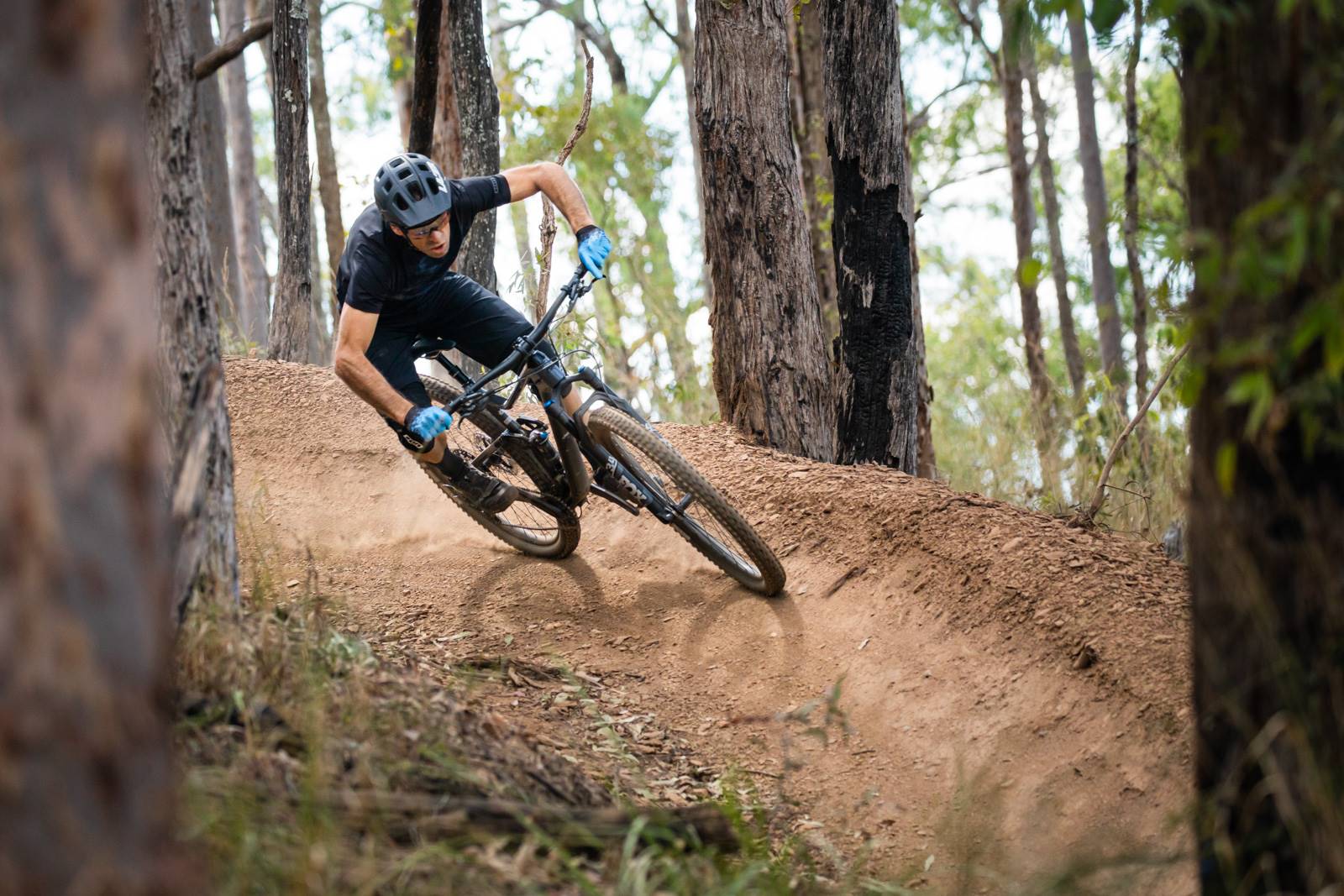
This comes down to a number of things, one of the big things is the suspension platform and geometry. The suspension is nice and plush, but it does ramp up very well in the mid-stroke, and Merida say it feels bottomless. What that is, is the suspension ramping up progressively, and not blowing through travel to a hard bottom out. On the trails, that means on rougher trails you’re using plenty of the suspension, but when things get a little gnarlier, you’re not getting a knock with a hard bottom out. That plushness in the first part of the travel offers some nice ‘pop’ to preload and pop over features and from one line to the other. Throw in the firm and lock out positions on the rear shock, and the bike pedals really well on smooth terrain and long climbs. I rarely used the lock out as the suspension works best when it’s allowed to do its thing and create more traction – whether you’re going up, down or along.
The geometry isn’t quite as progressive as some, but after spending about 6 months riding a Norco Optic, I found this was a very enjoyable short travel trail bike. Bikes that get longer and slacker don’t do so well on flatter trails, unless you really put the effort in to keep the bike working – pump the terrain, get the bike moving, and they are a blast. The Merida One-Twenty will happily spin along as you listen to birdsong and enjoy the wind in your hair, but as soon as you want to drop the seat and push into some loose corners and down the next chute, it’s willing to oblige. If I was a gravity focused rider looking to scale back to something shorter travel, then a bike like the Optic or similar might suit. But where the One-Twenty shines is being a real do-it-all bike. I’d jump into either a club enduro like the Fox Superflow events, or a lap based XC event on the One-Twenty, or a multi-day event. And I’d still be happy using it chasing Strava personal bests on all my local descending trails, and taking it to some of the best mountain bike parks around.
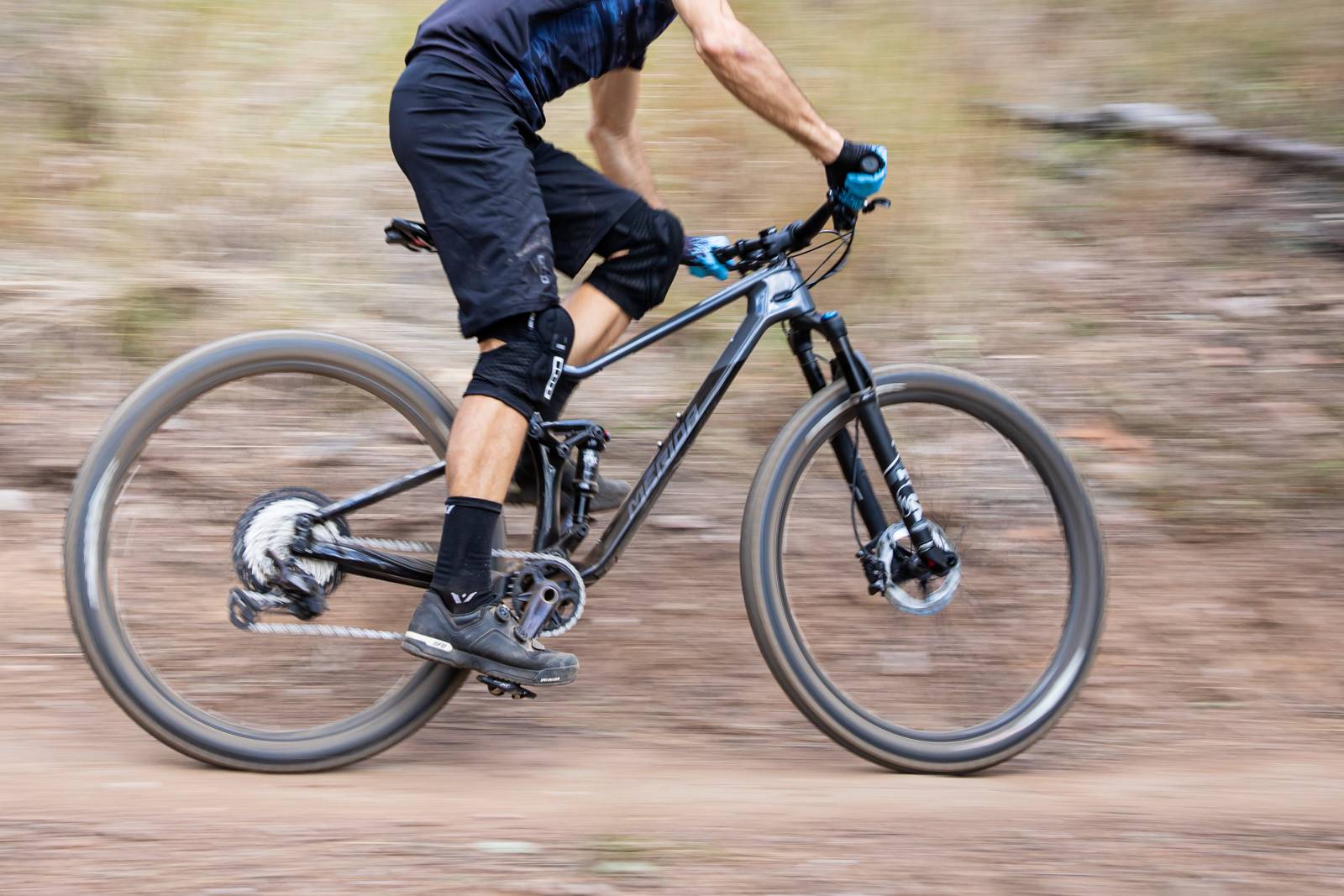
If there are any short comings, they are few and far between. It would be nice to see a matched 2.4” tyre sizing. I fitted the Hope Fortus 26 test wheels with 2.5”/2.4” Minions up and they were a good meatier option in the One-Twenty – and still with enough clearance. And as Brad noted when testing the 8000 model in 2019, the seat tube is tall by current standards. I had no issue with my seat height and the 170mm stock dropper, but along with rear end tyre clearance the seat tube height is a small detail that would likely be shorter to allow even more drop in the newest bikes out there.
Our Take
The Merida One-Twenty isn’t a bike I had to think about riding, it was fun to get onboard for just about any mountain bike ride. To me, that’s exactly what I want in a trail bike. I want to be able to ride it all day, and I want to be able to test myself on some features on group rides when erred on by mates. And that’s exactly what the One-Twenty allows.
Unless you’re really looking for a bike that has the capability to truly push yourself on very demanding gravity trails, the Merida One-Twenty is one rocking mountain bike. The bike is subtle in its grey colour, and in a similar way it just blends into the background when riding. It’s not asking for extra input to make the magic happen, it just takes care of things. Does that make it vanilla? Maybe. But there is a reason vanilla is always an option, and that’s because a lot of people like it.
Want to see more bike reviews like this? Treat your self to a subscription to AMB mag
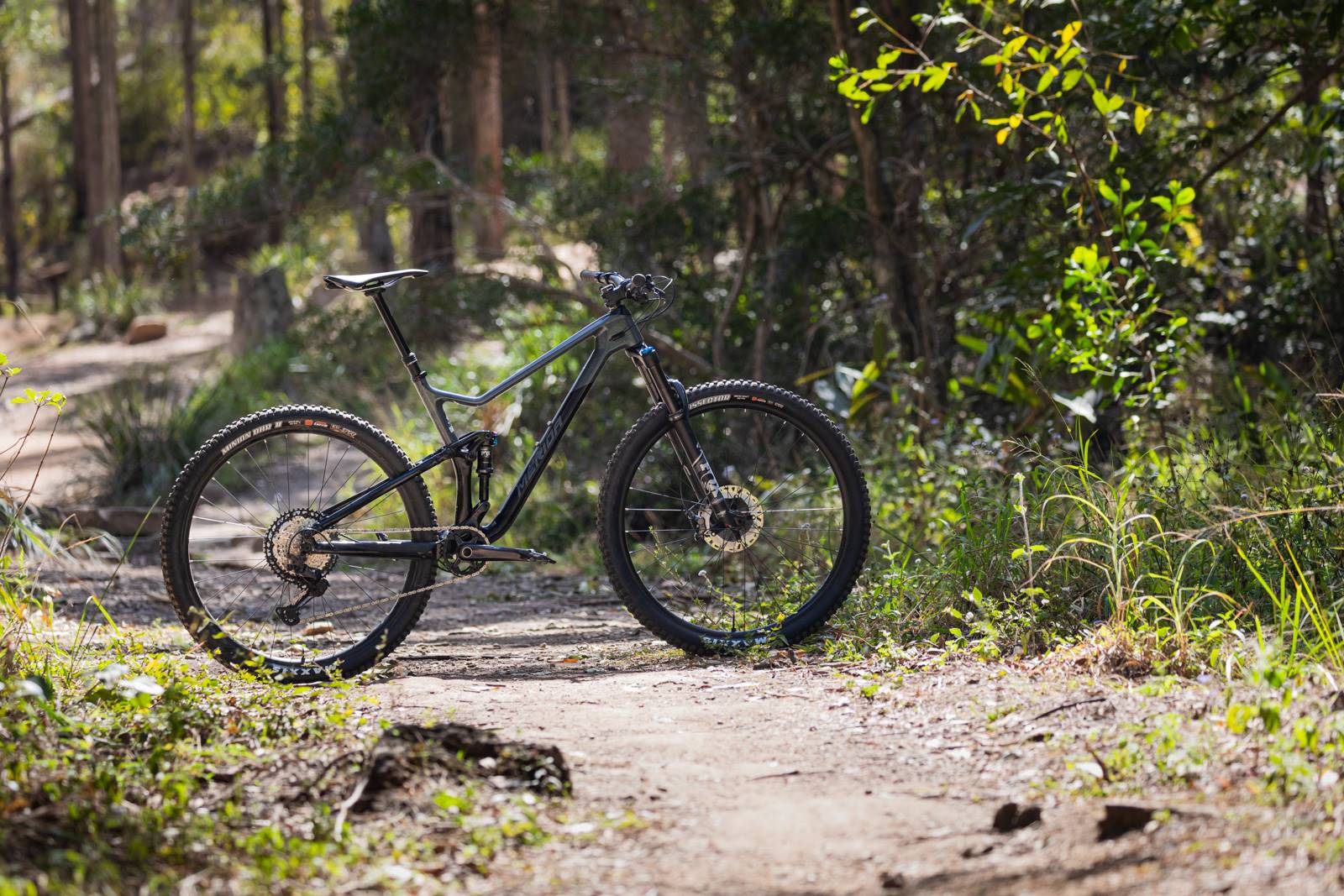
Brand: Merida
Model: OneTwenty 7000
RRP: $5699
Weight: 13.6kg (as tested)
From: merida-bikes.com
Available Sizes: S, M, L (tested), XL
Frame Material: Carbon Main triangle, alloy stays
Fork: Fox Rhythm 34 Float, GRIP damper, 130mm
Shock: Fox Float DPS Performance, 120mm
Shifter: Shimano XT M8100 12sp
Derailleur: Shimano XT M8100 12sp
Crank: Shimano XT M8100, 175mm, 32t
Bottom bracket: Shimano BB92
Chain: Shimano XT M8100 12sp
Cassette: Shimano XT M8100 12sp, 10-51t
Hubs: Shimano XT M8100 12sp
Spokes: DB Black stainless
Rims: Merida Expert TR, 29mm internal
Tyres: Maxxis Dissector 2.4” Front, Minion DHR II 2.3” Rear
Brakes: Shimano XT M8120, 180/180mm
Stem: Merida Expert TR, 35mm
Handlebars: Merida Expert TR, 35mm, 780mm
Seatpost: Merida Expert TR, 170mm, 30.9mm
Saddle: Merida Expert CC

